Feast Pilgrimages to Israel–Messianic Lessons Learned from Shemitah
Feast Pilgrimages to Israel--Messianic Lessons Learned From Shemitah
Pilgrimages to Israel for the Feasts of YHVH
Question Posed: Are We Suppose to Conduct a Pilgrimage to Israel Today?
The question has been posed and sadly has been incorrectly answered some: Are we obliged to keep Unleavened Bread, The Feast of Weeks (i.e., Pentecost or Shavuot) and Feast of Booths (i.e., Tabernacles or Sukkot) in the Land of Israel (namely Jerusalem), in obedience to Deuteronomy 16:16?
Facebook Arguments Again
This past week, I visited one of our Facebook feeds and happened upon a rather robust exchange by several Hebrew Roots/Messianic friends regarding the three (3) Pilgrimage Feasts and the Torah instruction to celebrate those feasts in Israel./Jerusalem. The exchange apparently began with one rather forceful individual telling her Facebook friends that they were required by Torah to keep the three (3) Pilgrimage Feasts in the Land of Israel each year. Failure to do so, would of course, be a violation of Torah. This individual provided a few chapters and verses where Father instructed us to keep Unleavened Bread, Shavuot (Feast of Weeks) and Sukkot (Tabernacles) at the place where He would cause His Name to be placed (Deuteronomy 14, 16; 26:2); essentially to keep these feasts where Father’s presence would be among us. Wherever the Father instructed His Tabernacle to be erected once we entered the Land of Promise (e.g., Shiloh), and ultimately where His Temple would be established by King Solomon is where His presence was established and we were to keep these three (3) Pilgrimage Feasts at that location.
Needless to say, the exchange was somewhat contentious. At one point in the feed, the individual who started the whole discussion about Torah-mandated Pilgrimages to Israel by 21st century observers for these three Feasts, maligned a very popular and respected Hebrew Roots/Messianic teacher. That teacher somehow entered the discussion and you could easily tell by the words he posted that he was devastated by some of the negative things that individual was saying about him. This teacher tried to defend his reputation, but when the discussion began to focus more on him personally and on his teachings than on the actual topic of discussion, he gracefully bowed out of the conversation.
The thing that hurt me the most about this exchange were the people, no doubt new or inexperience to Torah-keeping, who were devastated to think that they may have been violating Torah by not making the pilgrimage to Israel during those Feasts. Many lamented that they could not possibly afford to travel to Israel with their families three (3) times each calendar year and pay for 16 or more days of lodging and food. The individual who started the conversation suggested possible cost saving-options for making the Pilgrimage more affordable, but like the Pharisees of Yeshua’s day still insisted that it was every believe’rs responsibility, regardless of their personal situation, to make these trips each year without fail.
Many participants in this discussion went to great lengths to prove to this individual that she was taking the pilgrimage instruction out of context, citing obvious facts that the Temple and its services are no longer in existence and that our bodies have become the Temple of YHVH today. But true to many in our Faith Community who read Torah without proper discipleship; without the teaching and leading of the Holy Spirit; and without Yeshua as their example for proper Torah Living, there was no reasoning or humiliation to be found in this individual. It was truly a sad thing to witness.
The Pilgrimage Instruction Given
Deuteronomy 16:16 reads as follows:
Three times in a year shall all thy males appear before the LORD thy God in the place which he shall choose; in the feast of unleavened bread, and in the feast of weeks, and in the feast of tabernacles: and they shall not appear before the LORD empty: (Deu 16:16 KJV)
If you are interested, companion verses to this passage include: Exodus 23:14, 22, 23 and 17.
It goes without saying that the last place Father chose to have these 3 feasts kept by us was in Jerusalem. That was where His Temple was erected and the place where His presence dwelt. Thus in this passage, Father commanded us to appear before Him–His presence–for these 3 key feasts or moedim.
What’s the Deal Here?
So what’s the deal here? The instruction for us to conduct 3-pilgrimages to the seat of His presence (i.e., the sanctuary in Shiloh and then the Temple in Jerusalem) each biblical calendar year is clear. But there are some mitigating factors that come into play here that we must take into account when deciding to keep these 3 feasts according to the literal way it is recorded in Torah.
Mitigating Factors to be Considered
For starters, it is common knowledge that the Temple was destroyed by Roman General Titus in 68 C.E.. Josephus documents this tremendous event in “War,” 6.4.5-6.4.7. Ezekiel records seeing the glory and presence of YHVH leave the Temple in Ezekiel chapters 8 through 11; this prior to the temple’s destruction and the people taken into captivity. Temple worship and Father’s presence in our midst was the fulcrum upon which this instruction was given and required. Both of these elements are now missing and not present in the Land of Israel.
The Answer is Given
Context-Context-Context
Yeshua Must Be Our Example
Yeshua must be our exclusive example for proper Torah-Living. There is no one else who we should imitate. The Spirit of YHVH rested upon Yeshua as recorded in the 11th Chapter of Isaiah and confirmed by Master in Luke 4:18. Father’s Spirit rests upon He whom the Father chooses to have His presence rest. Generally speaking, that individual who has the Spirit resting within and on them must be of a pure heart (Matthew 5:8) and a clean, undefiled heart and soul (Psalm 24:3-5). We saw the physical manifestation of this in the workings of the Tabernacle whereby every individual who would come to the sanctuary for worship was required to be ceremonially clean while the sanctuary and the attending priests were to be in a perpetual state of cleanliness and purity. Have you heard about the current state of modern Israel? The modern State of Israel is a far cry from being in any semblance of cleanliness. Certainly, the Father’s presence is not resting upon the Land today. Indeed, I believe with my whole heart that Father’s watchful eye and protective hand remains over Israel even today (Deuteronomy 11:11, 12; Psalm 121:4). But to simply take the original Torah instruction to keep each of the three (3) pilgrimage feasts in Israel without keeping full truth of the instruction as it applies today, is in my book, adding to, or maybe even, taking away from Father’s Torah.
Faithfully
___________________________________________________________________________________________________________
Messianic Lessons Learned from Shemitah
The Shemitah and Modern Hebrew Roots
When we consider the Torah instruction related to the Shemitah (or the Sabbatical Year) and the Jubilee Year that was given to Moses (i.e., Moshe) on Mount Sinai, which he then passed down to us, I was compelled to reflect upon the significance these two great observances have to our modern Hebrew Roots Community. It turns out that last Sabbath’s Torah Portion–Parashah 32–entitled B’Har, or “On Mount,” dealt with this very subject. The section of this portion that speaks to the Shemitah and the Jubilee is contained in Leviticus 25:1-26:46 and Deuteronomy 15:2-10. It must be mentioned, however, that without the corresponding Brit haDashah reading, found in Luke 4:16-21, the relevance of these two great observances to Torah Observant Believers in Yeshua could easily become lost in rote, blind obedience to an instruction that has sadly become widely misunderstood and improperly kept by 21st century Messianics and Jews the world over.
The Popularity of Jewish Things
Have you noticed how popular Jewish names, concepts, words and even teachings have become of late in many sectors of Christianity today? There was a time, not too long ago, that anyone who would bring up anything of a Jewish nature in any Christian discussion or teaching, that individual would more than likely receive the stink eye by anyone who happened to be in hearing range. But today, it’s become a rather theologically sound practice to infuse Jewish terms, names and concepts into Christian sermons and teachings. Or dare I say, Hebrew terms, names and concepts? For as encouraging as this popularity in many things Jewish may appear to some of us, the true Hebrew Roots message is more times than naught overlooked by these individuals who seek to popularize Hebraism to Christianity.
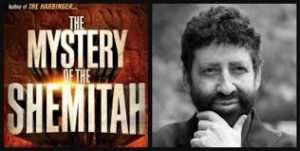
Johnathan Cahn and others were instrumental in introducing Shemitah to mainstream Christianity and Hebrew Roots communities.
I am reminded while reflecting upon this popular wave of Hebraism that seems to have taken Christianity by storm, of the well known Messianic Jewish personality, Jonathan Cahn, who is considered formally a Messianic Jewish Rabbi. Let me take you back just a couple years ago. If you recall, it appears that many Messianic and Jewish communities in one form or another observed Shemitah from September 2014 to September 2015. During this same period we had a series of, what many Hebraic Roots and Christian teachers called Blood Moon sightings. The combination of these two events seemed to create quite a hubbub throughout both Christian and Messianic circles. And it was during this time frame that teachers and preachers such as Jonathan Cahn climbed the rapid ladder of financial success, so to speak, by capitalizing on the Torah instructions surrounding the Shemitah. Sadly, the true message and relevance of Shemitah was lost in all the hubbub and excitement.
Being transparent, I did not read any of Mr. Cahn’s books or listen to any of his teachings on the Shemitah and Blood Moons. What I did see was the huge impact that these Hebraic Roots teachers and preachers had on both communities. If you recall, the primary focus of Cahn and teachers like him was to warn of pending doom and gloom to come upon the inhabitants of Israel and the whole earth because the nations have violated Torah’s Shemitah instructions. Bear in mind, such a pronouncement is pure speculation and frankly not biblical since Shemitah only pertains to the people living in the Land of Israel. It should also be mentioned that no one truly knows when the Shemitah and Jubilee are supposed to occur. The Shemitah and Jubilee time frames were forever lost to the memory of the Jewish people after the destruction of Herod’s Temple in 68 C.E. and after the Sanhedrin was disbanded and exiled in 359 C.E.
I would give those Jews living in the land of Israel who attempted to keep the Shemitah credit for at least trying to obey Torah, despite the rabbis having no true knowledge of when Shemitah was to occur.
The Missing Element of The Shemitah and The Jubilee
There are a couple problems with this whole Shemitah instruction as it relates to the modern Hebrew Roots/Messianic Community.

For Truth-seekers, the Shemitah and Jubilee are about Sabbath Rests, Faith, Miracles, Restoration and Redemption.
To begin with and as I stated earlier, no one truly knows when the Shemitah year is supposed to occur. The Orthodox Jewish website www.chabad.org projects the next Shemitah year cycle to be 9/7/2021 through 09/25/2022. Now, where the rabbis got those dates from, I have no idea. My guess is that they believe they have the authority to determine Father’s appointed times, as they have shown similarly in their adjusting the beginning of the biblical calendar year from Nisan 1 (i.e., Aviv 1) to Tishri 1 (i.e., the 7th month). The problem with anyone tinkering and moving around Abba’s appointed times is that He told us not to. Father instructed:
What thing soever I command you, observe to do it: thou shalt not add thereto, nor diminish from it. (Deu 12:32 KJV)
Is rabbinic authority challenging this commandment when they establish when the Shemitah and other set-apart days occur during His biblical calendar year? If not, then it certainly seems that they are getting close in my opinion.
The other thing is the application of the Shemitah. In other words, does the Shemitah have universal application to all Torah Observers scattered throughout our 21st century world? And the answer to this rather loaded question is: yes and no. Let’s think about this for a bit.
Torah Portion 32–B’Har–Leviticus 25-26:46
I was blessed to have come upon the Shemitah instructions in last week’s Torah Portion: Parashah 32, B’Har (On Mount), Leviticus 25:1-26:46. Upon studying this section, I was reminded of that period between 2014 through 2015 when both the Christian and Hebrew Roots worlds were smitten, essentially obsessed, over Shemitah. It seemed as though everyone wanted a piece of Shemitah. The Christians wanted to somehow link to Shemitah because of a popular curiosity associated with Jewish things and multiple teachings that circulated throughout Christendom that violations of the Shemitah commands in Torah would result in worldwide death and destruction.
I guess it’s only fair to say that Hebrew Rooters came out in droves wanting a piece of Shemitah because observance of Shemitah was a Torah instruction given to us by YHVH; among other reasons I would imagine. So, many of us felt compelled to literally observe it. Therefore, if we owned and operated a farm, we did not work the farm that entire year that was designated as the Shemitah. Then we were moved to forgive any debt that was owed to us, if indeed we held any debt. In all honesty, however, I heard very little about debt forgiveness during that period.
I understand that in the Modern State of Israel proper, many farmers actually observed the Shemitah and did not work their lands that year. For all intents and purposes, it was somewhat of a heady and enlightening time to say the least.
Which brings me to that yes and no answer to the loaded question I proposed to you just a bit ago regarding the application of Shemitah to the 21st century Torah Observers who are scattered throughout the world. I already mentioned that no one today truly knows when Shemitah is to occur. Anyone who says they do, is not being truthful–or just misinformed maybe. Anyone who says that it doesn’t matter and that we should just start observing Shemitah whenever the urge hits us is frankly adding to Torah. The clock for Shemitah began the year we entered the land of promise. While we sojourned in the Sinai Desert, we did not keep Shemitah. In fact, YHVH instructed Moshe while Moshe was on Mount Sinai to tell the people of Isra’el: “When you enter the land I am giving you, the land itself is to observe a Shabbat rest for YHVH” (Leviticus 25:1; CJB). And from there YHVH goes on to delineate the essential elements of Shemitah.
Therefore, it is clearly stipulated in this section of Torah that Shemitah observance is specifically tied to the Land of Israel. In other words, Shemitah is not applied to, tied to, or to be practiced anywhere else on the planet. To do so would be bordering on adding to Torah which Father strictly prohibited (Deuteronomy 4:2; 12:32).
Zeal is Good, But Zeal Can Also Cause Us to Get Off Track
I get that many of us in Hebrew Roots desire to live Torah perfectly and to the absolute best of our abilities. So some of us tend to be zealous in our keeping of Torah. Our zeal for Torah, however, must not override our sense of reason and understanding. I mean, it’s one thing to keep Father’s Feasts and the weekly Sabbath and the Food Laws which are universal in their applicability–that is, there are no but’s or what if’s associated with them. We are to obey them without question and employing a modicum of zeal in keeping them can go a long way towards solidifying our relationship with the Almighty.
When it comes to other Torah instructions such as Shemitah and Jubilee and Messianics making pilgrimage feasts to Israel and sacrificing lambs on Passover (and these are stories for another time), we must consider context and understand to whom these instructions were originally given to and then determine how they would apply to us today. Many such Torah commandments applied strictly to the Land of Promise or to Temple worship. Thus it goes without saying that before one goes off half-cocked to keep specific Torah instructions such as Shemitah on your Virginia homestead, or embark on a pilgrimage to Israel to keep the feast because required us to keep the three (3) Feasts of Unleavened Bread, Shavuot and Tabernacles/Sukkot at the place where He placed His Name, we must first determine if those specific instructions apply to us today.
In the case of Shemitah, the instructions given in Leviticus 25 clearly tell us that this instruction applies to those of us living in the Land of Promise. Furthermore, if we were to live in the Modern State of Israel today, we still would not know when Shemitah is to take place, apart from the made up dates given by the rabbis. So no: we do not keep Shemitah outside of the Land of Promise and no, we do not know when Shemitah is supposed to actually take place.
Now, is it a crime for someone living outside of Israel to exercise Shemitah principles when it comes to their farm land? No. In fact, it’s a fantastic principle to follow. However, in following Shemitah principles outside of the Land, one must be very careful not to elevate that practice to Torah-level authority. In other words, one should not demand that others do likewise as if their refusal to do so would violate Torah because it would not violate Torah. You know how some of us can be when it comes to certain Torah instructions?
Context–Context–Context
We must be ever so care to ensure that we honor and keep Torah in proper context and have a firm understanding as to why we are keeping the instruction and to what end we are keeping the instruction. The problem with keeping and living Torah out of context is that we will ultimately end up adding our own personal spin to Torah (which we’ve been instructed not to do). If not for ourselves in terms of how we keep Torah, let us always be cognizant of the young and impressionable of our Community. So many of our newbie jump out of the frying pan of religion, only to be caught up into the fire of religion yet again.
The other think we should be aware of is that when we go out of our way to keep and practice Torah outside its truest context, we essentially feed into our Christian cousins’ accusations that we are all legalistic in our Faith-keeping and that we are attempting to purchase our salvation by works of the Law. Well, I’ve never been afraid to be called legalistic; I tend to see that as somewhat of a badge of honor, if the accusation is being made within the context of my being obedient to Torah as we are meant to keep it (e.g., keeping the weekly Sabbath, the annual Feasts of YHVH and the food instructions). But when we as a veteran Torah Observer insist and teach others to practice Torah out of context, then the legalistic allegations may not be too much of a stretch. We saw true legalistic religion practiced by the Pharisees of Master Yeshua’s day. This band of controlling religious leaders erected a religion around Torah and in so doing, enslaved the Jews of Yahoshua’s day, and one could argue, Jews through the last couple millennia.
I would be less inclined to believe that true Hebrew Rooters/Messianics are keeping Torah for purposes of purchasing their salvation and place in the Kingdom of YHVH. Virtually everyone I know who keeps Torah in our Faith Community does so because they realize that Torah has not been done away as pop-Christianity has teaches. On the contrary, we keep Torah in its proper context because wish to please our Heavenly Father by being obedient to His instructions. There will always be some in our Faith Community who will insist on erecting personal walls around Torah and creating traditions and practices that ultimately trumps the authority of Torah, such as we saw happen with Rabbinic Judaism. When we give into the adding and subtracting of Torah we run the risk of losing perspective and before you know it, Master Yahoshua and His teachings go out the door; we become Pharisaical in our worldview; and do indeed take on a belief system that we are purchasing our salvation and place in the Kingdom of YHVH.
This is human nature when it collides with Torah. That is why it is so important to die to self and allow the Holy Spirit–the Ruach HaKodesh–to fully operate in our lives. When we allow the Holy Spirit to take over, there is no risk of behaving contrary to Torah. The Holy Spirit is the Spirit of Truth that rested upon our Savior and that our Master promised us (John 14:17; 15:26).
Master promised us that He would have His Father send us His Comforter and The Comforter is also the Spirit of Truth that will guide us into all truth (John 16:13).
I submit to you here today that if our community–individually and collectively speaking–were to make it a practice to fast and pray that Father grant us a greater unction of the power and authority of His Holy Spirit, our keeping of Torah would be much more meaningful and spot. Our obedience to Torah would be more in line with the example Yeshua provided us and would better glorify our Father in heaven.
The Spirit and Truth of the Matter
So what then must a Torah Observant Believe in Yeshua Messiah take away from the Shemitah and Jubilee instruction if in deed we do not know when these set-apart days to occur and we live outside the Land of Israel (or in the Land of Israel for that matter)? What is the Spirit and Truth of Shemitah and Jubilee?
The grander point to keeping any commandments, especially Feasts of YHVH and set-apart days such as the Shemitah and the Jubilee years, is the worship and glorifying of YHVH our Elohim. In other words, it’s all about Father. He must always be the focus of our obedience and keeping of His instructions, with an eye on Yahoshua our Messiah, who is the end–the bottom line–the end goal if you will–of Torah for righteousness to everyone of us in our Faith Community (Romans 10:4).
Lessons to Be Gained From Shemitah Over Blind Ritualistic Obedience

Although the concept of Shemitah is universally brilliant, the Shemitah instructions applies only to the land of Israel.
The Shemitah and its grand sister year, the Jubilee Year, when they were passed down to us by the Almighty through Moses, taught us to respect the Land that Father gave to us by invoking a period of rest for the land for an entire year. In that time, we were to not work the land, which included no planting, pruning or harvesting of crops and produce. What were we to do for food during that Sabbatical Year period we asked? Well, we were to trust and rely upon the providence and provision of our Heavenly Father. As the land was allowed to rest all those months, it would produce food on its own. We were to then live off that spontaneous produce, if you will, as well as live off of any provisions we held from the previous harvest period to sustain us. Speaking of the previous harvests, Abba would miraculously increase our harvests from the previous years (Leviticus 25:19, 20).
Thus we were being taught to live by Faith in the Almighty’s provision and providence.
The other lessons were being taught was discipline and obedience. Discipline would come into play as an outcropping (no pun intended) of our Faith in Father’s provision. The natural tendency would be to turn to the work of our own hands to provide for our sustenance. So we would ignore Father’s commandment to let the land rest every Sabbatical Year and work the land in order to provide food for our families, which history bears out that we actually did do. As a result of our disobedience and lack of discipline in honoring the Shemitah, we were taken into Babylonian Captivity equivalent to the number of Shemitah Years we ignored (reference II Chronicles 36:21; II Kings 17 and 25).
The Shemitah also taught us about forgiveness of debt (Deuteronomy 15:2-10), which lesson was a precursor to the forgiveness for sins that we would receive from YHVH because of the sacrificial work of Yeshua on the execution stake.
The Shemitah taught us about the importance of Sabbatical rest, whereby we turn our attention away from the day-to-day grind of everyday life–in the case of Shemitah, the grind of farming, and turn our hearts and minds and souls to YHVH our Elohim. We of course see this embodied in the weekly Sabbath rest and in Father’s holy Feasts that we enjoy. There are times in Father’s calendar when he simply wants us to stop what we’re doing and give Him our full attention and adoration.
The Shemitah also taught us of the importance and sacredness of the Land. Torah reveals to us that YHVH cares for the Land of Canaan and His eyes are always on it all the time (Deuteronomy 11:12). Now, that’s not to say that the Jews, or for that matter, any one of us should worship the Land of Israel. The only person we are to worship is YHVH our Elohim. The point is that it must become common knowledge for us that Father has a special attachment to the Land that He has given to us His children.
The companion year of the Jubilee, which also involves the Land, serves to teach us the principles of redemption and restoration. Torah teaches us that during the Jubilee–which occurred every 50-years–that being once every 7-Shemitahs–all owned property (i.e., farm land exclusively) was to be returned to the original owner (Leviticus 15:23-28). Essentially, land could not be permanently sold. Thus, in the event that we lost our family-inherited land–for whatever reason, and we were unable to redeem it or purchase it back from the new owner leading up to the Jubilee Year–we would have the family land restored to us in full by the grace and providence and provision that the Almighty factored into His Torah. I know, doesn’t make any sense to our western sensibilities–that being, once you sell your land and the new owner take possession of that land, they should be able to keep and do whatever they want with that land. But that’s not the way Father sees things. Father’s grace is amazing and fortunately, He writes the rules. Unfortunately, men like to come in the midst and re-write Father’s rules.
Thus the concepts of redemption and restoration, which are embodied in the Jubilee Year, foreshadowed Father’s Plan of Salvation, the Gospel of the Kingdom of YHVH, and in the mission and teachings of our Master Yeshua Messiah.
These are just some of the things that we are to take away and apply to our lives as it relates to the Shemitah and the Jubilee. It’s not about forcing a keeping of Shemitah or Jubilee which truth be told, we cannot properly do. It is, however, about Yeshua’s work on the execution stake to free us from religion and the scourge of sin and rescue us from eternal death. It is about trusting Father to meet our day-to-day needs. It’s about living disciplined and obedient Torah-based lives. It’s about loving and watching out for one another. It’s about loving, serving, honoring and worshiping the Creator of the Universe.
Waking-up From the Slumber-Feast of Tabernacles 2024-Kenya
Join Rod Thomas in this enlightening episode of the Messianic Torah Observer as he discusses the significance of the upcoming Spring Feasts, including Passover and the Feast of Unleavened Bread. Dive deep into the spiritual implications of these sacred times,...
Learning to Leave Well Enough Alone-Thoughts and Reflections on Torah Reading 24
Podcast Episode: Learning to Leave Well Enough Alone - Thoughts and Reflections on Torah Reading 24 In this episode of the Messianic Torah Observer, Rod Thomas delves into Torah Reading 24, titled "Learning to Leave Well Enough Alone." Rod reflects on...
The Two Afflictions That Get God’s Attention
Messianic Torah Observer Podcast Episode: The Two Afflictions That Get God's Attention Host: Rod Thomas Date: April 3, 2025 Episode Summary: In this episode, Rod Thomas shares his thoughts ahead of the spring feast and discusses the significance of Yom Kippur, the Day...
Shabbat HaChodesh-the Sabbath Before Biblical Rosh HaShannah 2025
Greetings and Introductions Greetings saints of the Most High. Welcome to another installment of the Messianic Torah Observer. Rod Thomas coming to you on a beautiful spring midweek day here in the DFW. I want to thank you for taking the time out of your busy...
Unlocking the Keys to the Kingdom Part 2: Binding and Loosing on Earth and in Heaven
Greetings and Introductions Greetings saints of the Most High. Welcome to another installment of the Messianic Torah Observer. Rod Thomas coming to you on a beautiful Spring midweek day here in the DFW. I want to thank you for taking the time out of your busy...
Unlocking the Keys to the Kingdom: Understanding Yeshua’s Teachings in Light of Torah
Greetings and Introductions Greetings saints of the Most High. Welcome to another installment of the Messianic Torah Observer. Rod Thomas coming to you on a beautiful Spring Preparation Day here in the DFW. I want to thank you for taking the time out of your busy...
Shabbat Zachor – Blotting out the Spirit of Esau in the Lives of God’s People
Greetings and Introductions As I am publishing this discussion, it is the 6th day of the 12th month on Yah's sacred calendar year, which translates to March 7, 2025. And we are potentially less than a month away from biblical Rosh HaShannah. As we near the end of this...
Understanding our Melchizedekian Priestly Pedigree-Part 4: Jasher’s Hidden Chronicles of the Melchizedekian Priesthood
Greetings, saints of the Most High! Welcome to another installment of the Messianic Torah Observer. Today, we delve into the intriguing topic of our Melchizedekian Priestly Pedigree, focusing on Jasher’s hidden chronicles. In Part 3, we explored the theological...
Understanding our Melchizedekian Priestly Pedigree-Part 3 : The Theological Implications of the Avram-Melchizedek Encounter
I. Greetings and Introductions Greetings saints of the Most High. Welcome to another installment of the Messianic Torah Observer. Rod Thomas coming to you on a cold, overcast Preparation Day in the DFW. Thank you for taking the time out of your...
Understanding our Melchizedekian Priestly Pedigree-Part 2 : Abram’s Melchizedek
This is "Understanding our Melchizedekian Priestly Pedigree Part 2: Avram’s Melchizedek.” Rehash of Part 1: The Royal Priesthood: Exploring the Historical, Spiritual, and Eschatological Roles of Melchizedek - Part 1 In part one of this...
Divine Judgment and Mercy and Righteousness: The Story of Sodom and Lot – Thoughts and Reflections on Torah Reading 16
Lot’s Privileged Life in Sodom Lot, Abraham's nephew, sits at Sodom's gate (19:1). What is the significance of Lot being seated at Sodom's gate? It’s likely that Avraham’s victory over Chedorlaomer’s and three other powerful Mesopotamian kings’ assault on the city...
Unveiling the Truth-Yeshua’s Prohibition Against Titles in Matthew 23:8-12-Part 2
Greetings and Introduction Greetings saints of the Most High. Welcome to another installment of the Messianic Torah Observer. Rod Thomas coming to you on a beautifully mild Preparation Day here in the DFW. Thank you for taking the time out of your busy schedules to...
Living in Yah’s Presence: The Call to Holistic Righteousness
Greetings and Shalom to you saints of the Most High. I went through some of this past Sabbath’s Torah Reading (i.e. Torah Reading 14 of Yah’s 3-year Torah Reading Cycle). And in my reading of this parshah, I became captivated by just the first three-verses of the...
Unveiling the Truth-Yeshua’s Prohibition Against Titles in Matthew 23:8-12-Part 1
Introduction Greetings saints of the Most High. Welcome to another installment of the Messianic Torah Observer. Rod Thomas coming to you on a gorgeous winter Preparation Day here in the DFW. Thank you for taking the time out of your busy schedules to fellowship...
The Ineffable Name Controversy — Breaking Traditions: The Controversy of God’s Name
The Ineffable Name Controversy: Breaking Traditions and Unveiling Truth Introduction: In the realm of faith, the Name of Yehovah holds profound significance. However, the tradition of not uttering or writing this sacred name has sparked controversy and debate. This...
The Royal Priesthood: Exploring the Historical, Spiritual, and Eschatological Roles of Melchizedek-Part 1
The Royal Priesthood: Exploring the Historical, Spiritual, and Eschatological Roles of Melchizedek - Part 1 Greetings, saints of the Most High! Welcome to another installment of the Messianic Torah Observer. I'm Rod Thomas, coming to you on a wintry Preparation Day in...
Exploring the Historical and Theological Aspects of Noahide Laws – Part 2
Exploring the Historical and Theological Aspects of Noahide Laws - Part 2 Greetings, saints of the Most High! Welcome to another installment of the Messianic Torah Observer. Today, we delve into the second part of our discussion on the Noahide Laws, a concept...
Trusting in the Divine Plan-The Significance of Avraham’s Covenant with Yehovah — Thoughts and Reflections on Torah Reading 10
Greetings, saints of the Most High! Welcome to another installment of the Messianic Torah Observer. I'm Rod Thomas, coming to you on a very dreary Preparation Day in the DFW. Thank you for taking the time out of your busy schedules to fellowship with me. As always, it...
Noahide Laws-A Historical and Theological Exploration Part 1
Greetings, saints of the Most High! Welcome to another installment of the Messianic Torah Observer. Today, we delve into the fascinating topic of the Noahide Laws, exploring their origins, development, and implications for both Jews and Gentiles. Introduction to...
From Noah to Nations: Unveiling the Prophetic Journey — Thoughts and Reflections on Torah Reading 8
In this Torah Reading Discussion, "From Noah to Nations-Unveiling the Prophetic Journey-Thoughts and Reflections on Torah Reading 8," we delve into the profound insights of Torah Reading 8. This study explores Genesis 9.18-10.32, Isaiah 49.1-13, and Revelation 5.1-14,...
From Flood to Faith: The Enduring Promise of the Noahic Covenant — Thoughts and Reflections on Torah Reading 7
The Noahic Covenant: Humanity's Path to Redemption Greetings, saints of the Most High. Welcome to another installment of the Messianic Torah Observer. I'm Rod Thomas, coming to you on a beautiful Shabbat in the DFW area. I hope this message finds you and your loved...
Why Aren’t We Keeping the Feast of Rosh Chodesh-Thoughts and Reflections on the Torah Reading for the 9th Rosh Chodesh
Greetings, Saints of the Most High! Welcome to another installment of the Messianic Torah Observer. I'm Rod Thomas, coming to you on a crisp fall afternoon in DFW. Thank you for taking the time to fellowship with me. I hope this post finds you and your loved ones well...
And God Remembered Noah — Thoughts & Reflections on Torah Reading 6 — Reboot
And God Remembered Noah This week's Torah reading, "And God Remembered Noah," is from Genesis 8:1-14, the 6th Parashah in our 3-Year Torah Reading Cycle. The Power of the Ruach In Genesis 8:1, Elohim remembered Noah and sent a wind (ruach) over...
Pleasing God-Yah in Perilous Times-Lessons From the Life of Noah-Thoughts & Reflections on Torah Reading 5 (Reboot)
Torah Reading this week is found in Genesis 6:9-7:24. It is a very familiar passage of Torah that bears a good many themes, concepts and spiritual applications. But for us today, I want us to focus on just one central theme, if you will. And that theme has to do...
Marring the Image of the Creator Yehovah Through Rebelliousness-Thoughts and Reflections on Torah Reading 4
Greeting and Introduction Greetings saints of the Most High and welcome back to another installment of the Messianic Torah Observer. I'm Rod Thomas coming to you on a beautiful fall Shabbat in the DFW. Thank you for taking the time out of your busy schedules to...
Was Eve the First Messianic and the Heart of True Worship — Thoughts & Reflections on Torah Reading 3
Greetings Saints of the Most High. I pray that you, your families, and fellowships are well and blessed. It was my intention to do, at the very least, an audio version of this teaching and discussion. However, since our return from our Kenyan missionary...
My Thoughts and Reflections on Whether Messianics/Netsarim Should Take Part in the Upcoming Electoral Process
Greetings Greetings saints of the Most High. I'm Rod Thomas coming to you from the DFW on a rather stormy first day of the week. Thank you for taking the time out of your busy schedules to fellowship with me and as always beloved, it is my hope, trust, and prayer that...
TMTO Update and Thoughts and Reflections on Kenya Missionary-Sukkot Trip
As I am posting these thoughts and reflections, it is the very last Sabbath of the 7th Biblical Month, November 2, 2024. And assuming our contacts in Israel are successful in sighting the renewed moon the evening of this post, we will enter the 8th Month of Yah's...
When Torah Becomes a Witness Against Us — My Thoughts and Reflections on Torah Reading 148
These are my thoughts and reflections on Torah Reading 148. I’ve been led to entitle this discussion: When Torah Becomes a Witness Against Us.” Our reading this week is found in Deuteronomy/Devarim 31.14-30. Key Themes and Concepts Found in our Parashah this...
Be Strong and Courageous — My Thoughts and Reflections on Torah Reading 147
Greetings saints of the Most High. Thank you for taking the time out of your busy schedules to fellowship with me here on this blessed day of rest in Yeshua Messiah. And as always, it is my hope, trust, and prayer that this installment of the Messianic Torah Observer...
Operating in Set-Apart Community Relationships — Torah Reading 142 Thoughts and Reflections
Shalom and Greetings Greetings saints of the Most High. Rod Thomas coming to you on a warm by beautiful Sabbath in the DFW. Thank you for taking the time out of your busy schedules to fellowship with me here on this blessed day of rest in Yeshua Messiah. And as always...
The Realities of the Messianic’s Ongoing War Against this World — Torah Reading 141 Thoughts and Reflections
As I am recording and publishing this installment of TMTO, it is July 20, 2024. It is the 13th Day of the 4th Month of Yah's Calendar Year. So much is going on in the world today. And if you miss a news cycle, you stand a good chance of missing some...
Operating in a Set-Apart-Kingdom Fashion– Thoughts and Reflections on Torah Reading 140
Greetings saints of the Most High. This is Rod Thomas coming to you from the DFW on a rather steamy but blessed Sabbath. I want to thank you for taking the time out of your busy schedules to fellowship with me here on upcoming day of rest in Yeshua Messiah. And as...
John’s Baptism of Repentance–Part 4 of True Biblical Baptism Series
Quick Rehashing of the Previous Parts to this Series This is “John’s Baptism: A Baptism of Repentance.” It is part 4 of our True Biblical Baptism Series. If you’ve not already either read or listened to the previous 3 installments in this series, I humbly...
Offering Unblemished Animal Sacrifices – Idolatry and Paganism Warrants Capital Punishment – God’s Choice of King to Reign Over Us-Thoughts & Reflections on Torah Reading 139
This is the 139th Reading of our 3-year Torah Reading cycle that is found in Deuteronomy/Devarim 17:1-20. It is a continuation of Reading 138 (the previous week's reading). I've entitled this teaching: "Offering Unblemished Animal Sacrifices-Idolatry and Paganism...
The Immersion of the Two Pentecosts/Shavuots–Part 3 of our True Biblical Baptism Series
As I am recording and posting this installment of TMTO, it is Preparation Day, June 14, 2024. It is the 48th day of the counting of the omer, which means that Shavuot/Pentecost/Feast of Weeks is just two-days away, on Sunday, June 16, 2024. And yes, some members of...
Shavuot-Pentecost-Feast of Weeks — Timing is Everything
Shalom and greetings from the DFW. Trusting, hoping, and praying that this post finds you, your families, and your fellowships are well and blessed. This very short post is entitled: Shavuot-Pentecost-Feast of Weeks-Timing is Everything. As I write and record this...
Mikveh or Baptism? Which Is It? Part 2 of the True Biblical Baptism Series
This week’s teaching will take us back a year and a half ago when I started a teaching on True Biblical Baptism. That teaching was a subset, if you will, of our multi-installment Paul and Hebrew Roots teaching series I began many years ago. Unfortunately, as it...
Seven Reasons Messianics Must Stand on the Side of Israel-Part 5 of Israel’s Inextricable Link to our Salvation Series
I’ve titled this discussion: Seven Reasons This Messianic Stands with Israel. Because this discussion complements the last series, we published (i.e. Israel’s Inextricable Link to our Salvation), which is not yet finished, I included it in said series. So, this post...
Learning to Forget God — Thoughts and Reflections on Torah Reading 132
This week's discussion will be on the contents of the 132nd parashah of our 3-year Torah Reading cycle. The contents of our discussion today is found in Deuteronomy/Devarim 8.1-20. It is part of the broader annual reading cycle's "Ekev" (aka Because) that most...
Yeshua’s Passover — The Means to Our Salvation, Redemption, and Covenant Relationship with God
As I am recording and posting this installment of TMTO, many observant Jews and Messianics will celebrate Pesach tomorrow evening, April 22. We who keep the observational calendar will observe Pesach on Tuesday, April 23, as well as observing the night of our Master’s...
Choosing Yeshua as our Pesach: Shadows of Pesach 2024
I’ve chosen to title our discussion here today “Choosing Yeshua as our Pesach: Shadows of Pesach 2024.” If I could have you turn to Exodus 12.1-6, we will read the portion of Torah is directly tied to this special day on Yah’s set-apart calendar: And...
Aviv’s Prophetic Shadows of our Redemption and Salvation Through Yeshua Messiah
The Torah ... a shadow of the good matters -- good things -- to come...(The Scriptures, 3rd edition. , Heb 10:1).As I am recording and posting this installment of TMTO, we are heading into this week's Sabbath on this beautiful Preparation Day in the DFW. And yes, we...
Welcome to Aviv 2024-A Brief Overview of the Month and a Discussion of What God Expects From Us This Month
And Yahweh said to Moses and to Aaron in the land of Egypt, saying, 2 “This month will be the beginning of months; it will be for you the first of the months of the year... “Observe the month of Abib, and you shall keep the Passover to Yahweh your God, for in the...
Why do we Dislike the God of the Old Testament? Thoughts & Reflections on Torah Reading 127
Introduction to Reading 127 This week's Torah Reading is contained in Deuteronomy 2.1-3.22. For all intents and purposes, it is a continuation of last week’s reading. It is the 127th Parashah of our 3-year Torah Reading cycle. I’ve been led to title this...
Deuteronomy-A Rehashing and Retelling of Torah to a New Generation-Thoughts and Reflections on Torah Reading 126
This week's Torah Reading, contained in Deuteronomy 1.1-46, is the 126th portion of our 3-year Torah Portion reading cycle. I’ve entitled this teaching: “Deuteronomy – A Rehashing and Retelling of Torah to a New Generation.” Deuteronomy is where we will be...
Explaining the Current Calendar Confusion Among Observational Calendar Keepers
Explaining the Current Calendar Confusion Among Observational Calendar Keepers Greetings Saints of the Most High. Trusting that this special post finds you, your families, and fellowships are well and blessed at the start of this new week. As I am...
The Torah of the Cities of Refuge–Thoughts and Reflections on Torah Reading 125
Shabbat Shalom. This week's Torah Reading, contained in Numbers 35:9-36:13, is the 125th portion of our 3-year Torah Portion reading cycle. And for our discussion today, we will focus only on verses 9 through 34 of chapter 35. This is, by the way, the final...
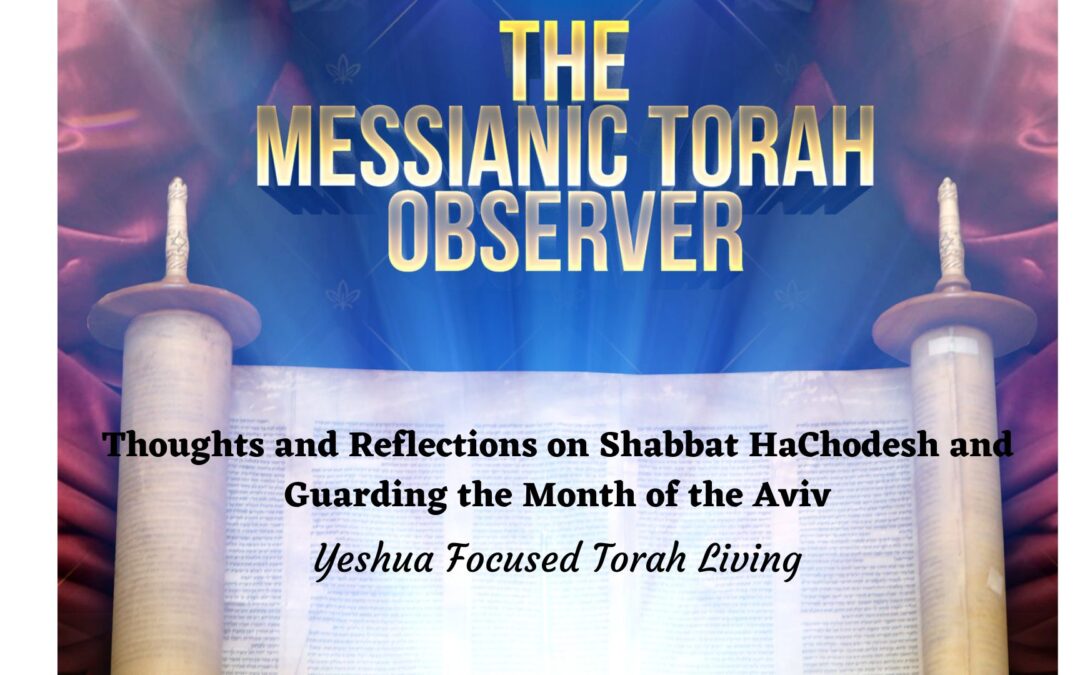
Shabbat HaChodesh and Guarding the Month of the Aviv Thoughts and Reflections
Shabbat Shalom beloved of Yeshua Messiah. I pray that this post finds you, your families, and your fellowships well and blessed on this hurried but expectant Preparation Day. 12 And יהוה spoke to Mosheh and to Aharon in the land of Mitsrayim, saying, 2“This new...
The High Expectations for God’s People to Fulfill His Will and Purpose — Thoughts and Reflections on Torah Reading 122
Shabbat Shalom beloved of Yeshua Messiah. This week's Torah Reading is the 122nd reading of our 3-year Torah Portion reading cycle. Our reading is found in Numbers 32:1-42. I’ve entitled this teaching: The High Expectations for God's People to Fulfill...
What God Expects From Us When We Make Vows — Thoughts and Reflections on Torah Reading 121
Shabbat Shalom beloved of Yeshua Messiah. This week's Torah Reading is the 121th portion of the 3-year Torah Portion reading cycle. Num 30:1-31:54 contains this week's Torah Reading. I’ve entitled this teaching: What God Expects from us When We Make Vows...
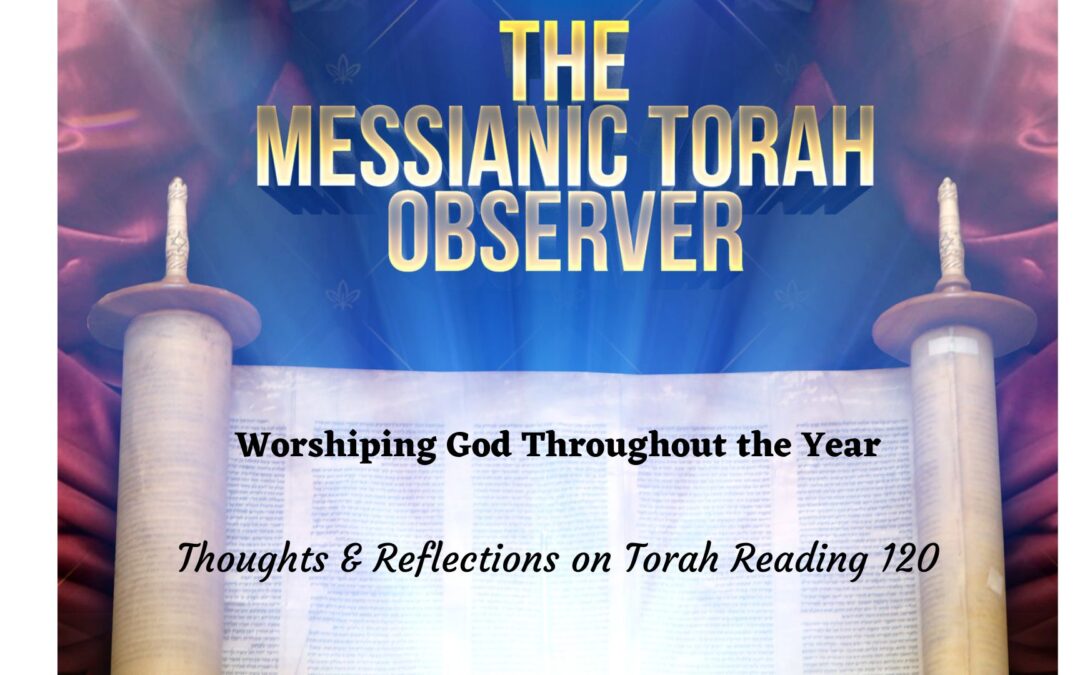
Worshiping God Throughout the Year — Thoughts and Reflections on Torah Reading 120
Shabbat Shalom beloved of Yeshua Messiah This week's Torah Reading is the 120th portion of the 3-year Torah Portion reading cycle. Num 28.1-29.40 contains this week's Torah Reading. I’ve entitled this teaching: Worshiping God Throughout the Year — Thoughts and...
The Generational Inheritance Covenant Realized — Thoughts & Reflections on Torah Reading 119
Shabbat Shalom beloved of Yeshua Messiah. This week's Torah Reading is the 119th portion of the 3-year Torah Portion reading cycle. Num 26:52-27:23 contains this week's Torah Reading. In last week's reading, Abba instructed Moshe to conduct a census of...
Learning to Fear God and Receive His Peace — Israel’s Inextricable Link to Our Salvation Part 4
After Paul’s conversion to the Way Faith, the Nazarene assemblies that were strewn throughout the Judean region, including the Galilee and Samaria, enjoyed a season of relative peace and unity. (Act 9:31) Those coming into the Way Movement, a movement that many...
The Call For God’s People to be Jealous with His Jealousy — Thoughts and Reflections on Torah Reading 118
And greetings elect of the Most High. Welcome back to the Messianic Torah Observer. I’m Rod Thomas, coming to you on Preparation Day, the 21st day of the 11th month of Yah’s biblical calendar year. That translates into 2/2/2024 on the pagan Roman Calendar....
Our God’s Blessings and Promises are Irrevocable — Thoughts and Reflections on Torah Reading 117
Greetings! Shabbat Shalom saints of the Most High. It is the 15th day of the 11th biblical calendar month and the 27th day of the 1st month of the Roman calendar year of 2024. I pray, trust, and hope that this week’s Thoughts and Reflections find you, your families,...
There’s a Little Balaam in All of Us–Thoughts and Reflections on Torah Reading 116
Shabbat Shalom saints of the Most High. It is the 8th day of the 11th biblical calendar month and the 20th day of the 1st month of the Roman calendar, 2024. I pray, trust, and hope that this week’s thoughts and reflections find you, your families, and your fellowships...
Nobody Told Me That the Road Would Be Easy, but He Didn’t Bring Me This Far To Leave Me–Thoughts and Reflections on Torah Reading 115
Greetings Saint of the Most High. Coming at you on this cold Sabbath morning in the DFW, on the first day of the 11th biblical calendar month, trusting and hoping that these Thoughts and Reflections on Torah Reading 115 find you, your family, and your fellowship is...
The Torah of the Red Heifer—A Foreshadow of Yeshua HaMashiyach–Thoughts and Reflections on Torah Reading 114
Shabbat Shalom, saints of the Most High. Coming to you on a cool and cloudy Sabbath in the DFW. I pray you, your families, and your fellowships are well and blessed. Our Parashah this week is found in Numbers 19:1-20:13. Although it covers Miriam's death and Moshe...
The Inherited Lie of Replacement Theology-Part 3 of Israel’s Inextricable Link to our Salvation Series
Greetings This is “Exposing the Lie that is Replacement Theology-Part 3 of Israel’s Inextricable Link to our Salvation.” Recap and Purpose of Post In part one we interpreted Master Yehoshua's statement to the woman at Jacob's well that salvation is of...
Aaron’s Budding Staff and the Responsibilities of the Levites-Thoughts and Reflections on Torah Reading 113
These are my Thoughts and Reflections on this week’s reading which is the 113th reading of the 3-year Torah Portion Cycle. It is found in Numbers/Bemidbar 17:1-18:32 (17:16-18:32). Our reading picks up immediately where the Korah incident left off. Remember from our...
Rebellion-Deal Breaker to Making it into the Kingdom-Thoughts and Reflections on Torah Reading 112
Shabbat Shalom Saints of the Most High God. These are my thoughts and reflections on this Sabbath's Torah Reading. It is the 112th reading of the 3-year Torah Reading Cycle. (See torahresource.com) Key Elements of this Week's Reading: Korah-Levite of the Kohath clan....
Asarah B’Tevet 10
Jews around the world honor Tevet 10 as a day of fasting, mourning, and repentance, specifically commemorating the siege of Jerusalem and the subsequent destruction of Solomon's Temple. It is an abbreviated, complete fast day (i.e. the observant Jew refrains from...
But Paul Said There is Neither Jew Nor Greek–Part 2 of Israel’s Inextricable Link to our Salvation Series
This is “But Paul Said There is Neither Jew nor Greek—Israel’s Inextricable Link to our Salvation Part 2 In part 1 of this series, I gave what I hope was a clear explanation of why I was led to explore Israel’s unshakable link to our salvation, which in great part was...
Israel’s Inextricable Link with our Salvation Part 1
This is "Israel's Inextricable Link to our Salvation Part 1." Back on 10/13/2023, I posted a teaching and discussion entitled Ministry Update and My Thoughts and Reflections on Hamas' Invasion of Israel. In the Hamas' Invasion of Israel portion of the post I expressed...
Are God’s People Required to Wear Tzitzit Today and is the Wearing of Them a Salvific Issue?
This is “Are God’s People Required to Wear Tzitzits Today and Is the Wearing of Tzitzits a Salvific Issue?” And just to cut to the chase, beloved, the answer to both questions is yes. I’ll explain why in just a few. Why Discuss Tzitzit Wearing? The reason I was led to...
Invitation to Messianic Discipleship-From the Sinner’s Prayer to True Messianic Discipleship
Welcome to The Messianic Torah Observer. Maybe you’ve been here before and have more questions about our ministry or the Messianic, Hebrew Roots, or Nazarene Israelite faith. And if that’s the case, I’m happy you’re here and I’m happy to answer questions you may have...
The Deep Abiding Mysteries of the Aaronic Blessing-My Thoughts and Reflections of Torah Reading 104
Greetings and Salutations Greetings, Saints of the Most High. This Rod coming to you from the DFW, thanking you for taking the time from your busy schedules to fellowship with me on this glorious Shabbat. As always, I hope, trust, and pray that this installment...
TMTO Ministry Update and My Thoughts and Reflections on Hamas’ Invasion of Israel
There are two things I wish to cover in this installment of TMTO. The first will be an update on this ministry: What's happening and what's ahead. Secondly, I want to share my thoughts and reflections on the terrible, tragic, horrific, heinous events that transpired...
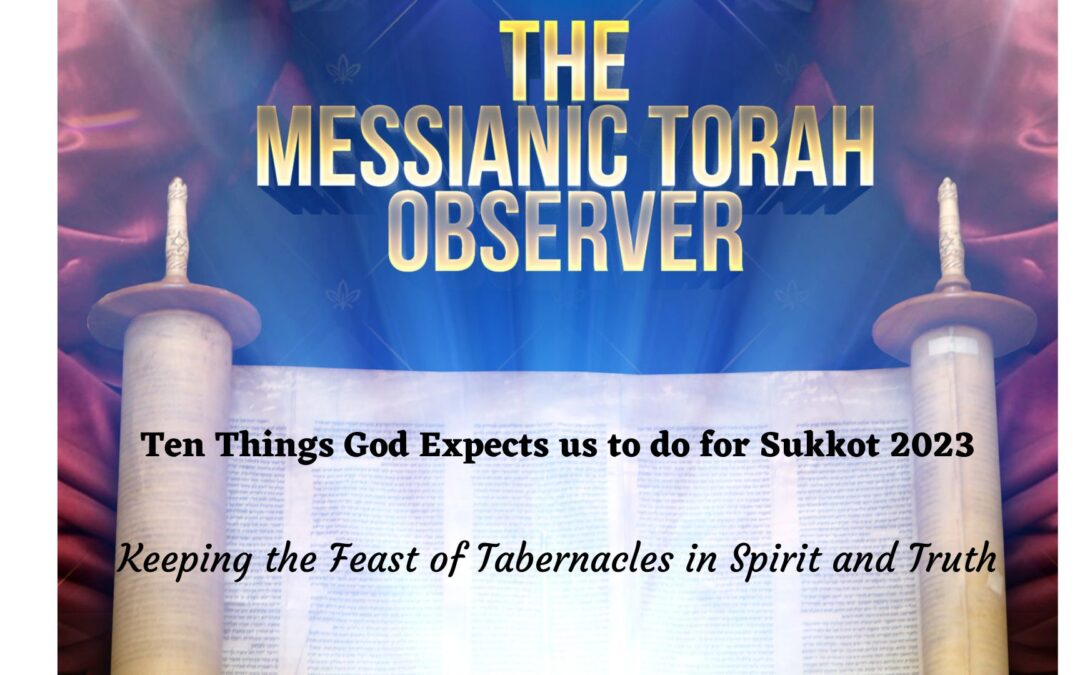
Ten Things God Expects us to do for Sukkot-The Feast of Tabernacles 2023
In today's installment, I will be putting out to you what I have elected to call ten things Yehovah says in His Word that every Netsari, disciple of Yeshua Messiah, must do for Sukkot/Tabernacles. Now, some of you will be acutely aware of many of these things...
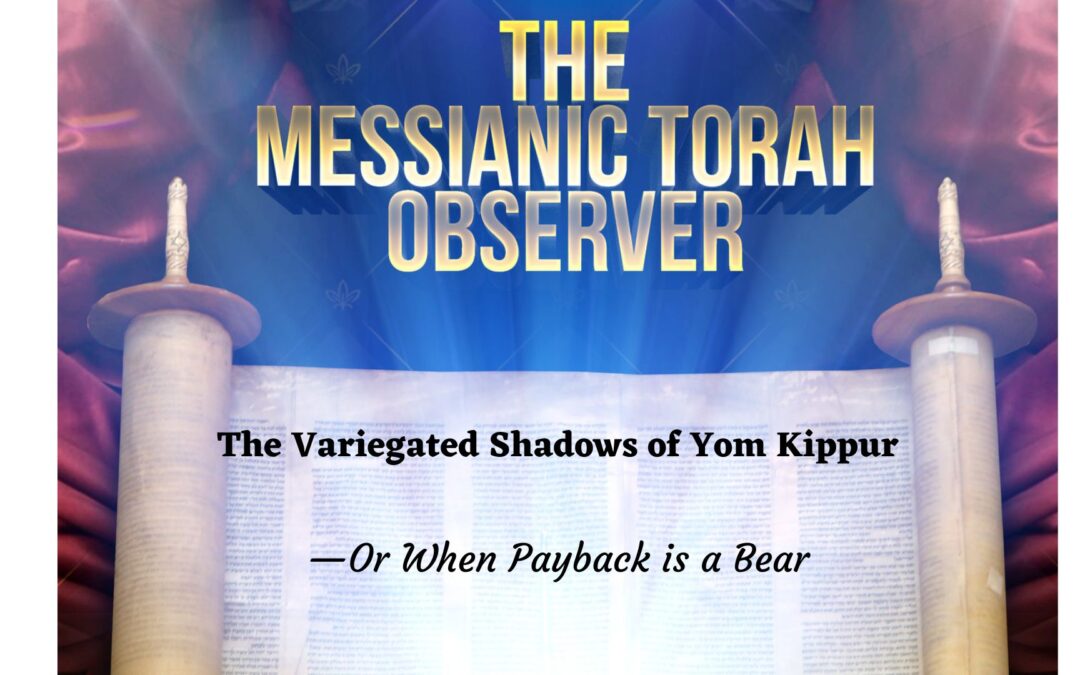
The Variegated Shadows of Yom Kippur 2023—Or When Payback is a Bear for the Enemies of God and His Set Apart People
Yom Kippur, the Holiest Day of Yah's Calendar Year Yom haKippurim is considered by many in our Faith and orthodox Judaism as the holiest day of Yah's biblical calendar year. On this holiest of days, Yah mandated His chosen ones to "afflict their...

Thoughts and Reflections on Yom Teruah-The Feast of Tabernacles 2023
This is a special TMTO post that I pray will encourage, and maybe inform you, as it relates to the imminent advent of Yom Teruah, or the Day of the Blowing of Trumpets. As you may, or may not know, we are on the very cusp of receiving this Moedim, this...
Upholding the Utter Holiness of God-My Thoughts and Reflections on Torah Reading 100
Greetings and Shabbat Shalom. It is my hope, trust, and prayer that this posting finds you, your families, and your fellowships well and blessed on this warm but blessed Sabbath in the DFW. A Short Passage with a Big Message This 100th parashah of our three-year...
God’s Priestly Armies Then and Now: Thoughts and Reflections on Torah Portion 99
Greetings on this warm Shabbat in Maryland. May this post find you, your families, and your fellowships well and bless. These are my thoughts and reflections on the 99th reading of the 3-year Torah Reading cycle. I've entitled this post "God's Priestly Army Then and...
The Power From Within-Thoughts and Reflections on Parashah 98
Greetings to you on yet another exceptionally warm Sabbath in the DFW. May this day of rest find you, your families, and your fellowships well and blessed. These are my thoughts and reflections on the 98th Torah or Parashah Reading of our 3-year reading cycle. It is...
God Brings His Children Unto Himself: My Thoughts and Reflections of Torah Reading 97
Greetings on this warm summer Shabbat in the DFW. These are my thoughts and reflections on the 97th reading of our three-year Torah Reading Cycle. It is contained within Numbers 1:1-2:13; the Haftarah in Ezekiel 47:13-23; and the Apostolic in Luke 15:1-7....
The Realities of the Messianic’s Liberty in Messiah–Thoughts and Reflections of Torah Reading 95
These are my thoughts and reflections on the 95th parashah of the 3-year Torah Reading cycle. It is contained in Leviticus/Vayiqra 25:39-26:2. I’ve entitled this discussion: The Realities of the Messianic's Liberty in Messiah--Thoughts and Reflections on Torah Reading...
TMTO Ministry Update
Greetings I'm back! Well, not quite. But almost. History of Ministry QFC (2012) Blog (2012) Podcast (2014-11/2022) YouTube (2018-11/2022) QFC Affiliates with Feastkeepers (New York) and First Century COG (Baltimore) (2019-2021) Why we ended the podcast...
Shabbat Chazon–Our Hope for Salvation and Redemption–Thoughts and Reflections on Isaiah 1:1-27
Shabbat Shalom Saints of the Most High on this balmy, but sublime Sabbath in the DFW. I'm Rod Thomas. Hoping, trusting, and praying that this teaching finds you well and blessed. As this teaching is being recorded and posted, 7/22/23, the 4th day of our 5th biblical...
God’s Requirements for Holiness in Worship–Thoughts and Reflections of Torah Reading 92
Greetings, Saints of the Most High, on this sizzling but beautiful Sabbath in the DFW. These are my thoughts and reflections on this week's Torah Reading, which happens to be the 92nd reading of our 3-year Torah Reading cycle. Given its contents, I've entitled...
Becoming and Existing as Priests of God-Thoughts and Reflections on Torah Reading 91
Greetings beloved of Yehovah on this steamy, but beautiful Sabbath here in the DFW. This week's Torah Reading is the 91st Reading of the 3-year reading cycle. It is contained in the 21st Chapter of the Book of Leviticus and entails the exclusive and exceeding...
Remaining Set-Apart in the Midst of this Evil and Adulterous Generation-Rebooting my Thoughts and Reflections of Torah Reading 90
Shabbat Shalom Greetings beloved, on this glorious set-apart day from the DFW. My sincerest hope, trust, and prayer is that this reboot of Torah Reading 90 will be a tremendous blessing to you in these troublesome times were living. This Week's Reading as a Reboot...
Conforming to God’s Ways in the Midst of Present Day Wokeness: Thoughts and Reflections on Torah Reading 89
Greetings from the DFW on this warm but glorious Shabbat. We commenced the 4th month of Yah's sacred calendar year earlier this week, and we're trusting in His keeping mercies as we progress throughout the month. These are my thoughts and reflections on the 89th...
Oh the Blood of Yeshua-Thoughts and Reflections on Torah Reading 88
Greetings, Beloved of the Most High, on this warm but glorious Sabbath in the DFW. I pray that you, your families, and your fellowships are well and blessed. This is the 88th parashah or reading of the 3-year reading cycle. It is contained in Leviticus/Vayiqra...
Only One Way to God-Thoughts and Reflections on Torah Reading 87
This week's reading comes under the General Torah Reading Title of "Acharey Mos," which covers chapters 16 through 28 in the Cepher of Leviticus/Vayiqra. Shabbat Shalom on this warm but otherwise beautiful Sabbath in the DFW. Our reading here today is contained within...
Dwelling in the Presence of God Through Physical and Spiritual Cleanness-Thoughts and Reflections on Torah Reading 86
Shabbat Shalom from the DFW on this, what promises to be a warm but beautiful Sabbath. What follows are my thoughts and reflections on this week's Torah Reading, which is the 86th reading of the 3-year Torah Reading cycle. Our portion is found in...
The Leprosy-Sin Connection-Thoughts and Reflections on Torah Reading 84
Shabbat Shalom. I pray that this post finds you and your families and fellowships well and blessed on this holy weekend. This is the Leprosy-Sin Connection. It is my thoughts and reflections on the 84th Torah Reading of our 3-year Torah Reading Cycle....
Torah Reading 81–The Ordination of Aaron and Sons–First Steps to Humanity’s Reconciliation
Shalom! I pray that you had a meaningful and blessed Sabbath. What follows are my thoughts and reflections on Torah Reading 81 of our 3-year Torah Reading Cycle on this mild, but peaceful Sabbath in North Texas. Parashah 81 Leviticus 8:1-36--The Ordination of Aharon...
Thoughts and Reflections on Torah Reading 80
Shalom! We pray that you had a restful and meaningful Sabbath this past week. This past Sabbath’s Torah Portion was the 81st parshah of the 3-year Torah Reading Cycle. (If you are so led to participate in reading and studying the weekly Torah Readings, we have put the...
Biblical Rosh Hashanah 2023 and a TMTO Ministry Update
Greetings Saints! May this post find you, your families, and your fellowships well and blessed during these challenging times. I wanted to update you as to what's going on with The Messianic Torah Observer of late, as well as I wanted to encourage you as we enter the...
Shabbat HaChodesh-The Realities of The Sabbath Before the Biblical New Year in 2023
Welcome to Shabbat HaChodesh—The Sabbath Before the Biblical New Year of 2023 Jewish custom holds that the Shabbat that falls on or before the 1st of Aviv is Shabbat HaChodesh--or the Sabbath of the New Moon. Like its two preceding Sabbaths of Shabbat Zachor and...
Shabbat Parah-A Foreshadow of our Perpetual Cleanness Through Yeshua Messiah
Shabbat Shalom, and welcome to Shabbat Parah. Like Shabbat Zachor last week, Shabbat Parah is neither a feast day nor a Jewish holiday. But instead, it may be viewed as somewhat of a themed Sabbath, if you will. And the theme of this Sabbath is brought forth through...
The Silver and Gold of our Service to God-Post Sabbath Thoughts and Reflections on Torah Reading 73
Shalom and Greetings, Beloved of Yehovah. I trust that you had a mighty and restful Sabbath. The Gist of Torah Reading 73 Yesterday’s Sabbath Reading discussion focused on Shabbat Zachor. If you’ve not had the opportunity to read that post, I would humbly invite and...
Shabbat Zachor 2023-Our Sabbath of Remembrance
Shabbat Shalom Beloved. Our Torah and Haftorah Reading in Light of Where we are on the Calendar This is a special Shabbat, for it is the Shabbat that immediately precedes the Jewish holiday of Purim. According to our observational calendar, Purim will occur at sundown...
The Ordination of the Levitical Priest-A Foreshadow of Good things to Come-Thoughts and Reflections on Torah Reading 66
Introduction Shabbat Shalom, beloved of Elohiym. I pray that you, your families, and your fellowships are well and blessed on this blessed day of rest in Yeshua Messiah. This is “The Ordination of the Levitical Priests: A Foreshadow of Good Things to Come.” It will...
The Renewed Covenant Spiritual Application of the Levitical Priestly Garments-Thoughts and Reflections on Torah Reading 65
Introducing Torah Reading 65 This week’s Torah Reading is the 65th reading in our 3-year cycle. It is contained in Exodus 27:20-28:43. I’ve chosen to entitle this synopsis of the reading: The Renewed Covenant Spiritual Application of the Levitical Priestly Garments....
The Connection Between Giving and God Dwelling with His People-Thoughts and Reflections on Torah Reading 63
Shabbat Shalom! Warm greetings to you, dear Saint. We hope, trust, and pray that this post finds you, your families, and your fellowships well and blessed on this bitterly cold Sabbath amid Hanukkah 2022. Our Torah Reading Have you ever considered the reality of a...
The Book of the Covenant-What it Means to Modern Day Believers-Thoughts and Reflections on Torah Reading 62
Our Torah Reading this Shabbat features the covenant Yah established between Him and Yisra’el at Sinai. It is the 62nd Torah Reading of our 3-year Torah Reading Cycle. Our reading is contained in Exodus/Shemot 24:1-18. This is the next iteration of Yehovah’s...
God Prohibits His People from Badmouthing Government Leaders—Thoughts and Reflections on Torah Reading 61
Shabbat Shalom beloved. In this Thoughts and Reflections of Torah Reading 61, we will examine a number of themes and concepts that fall within the realm of loving Yah and loving one’s neighbor as one would love themselves. I’ve taken the liberty of breaking this...
Dealing with Difficult Relationships-Thoughts and Reflections on Torah Reading 60
Shabbat Shalom saints of the Most High. May you, your families, and your fellowships be well and blessed in the perilous times we’re living. Central Themes and Life Lessons of Torah Reading 60 I’ve entitled this reading study: Dealing with Difficult...
The Fox in the Hen House–The LGBTQ Infiltration of Judeo-Christianity
Shalom beloved. I pray that this installment of The Messianic Torah Observer Journal finds you, your families, and your fellowships well and blessed. They Say that Curiosity Kills the Cat True to form, Hilary and I canvassed portions of YouTube to augment our worship...
We’re Getting Married in the Morning–Thoughts and Reflections on Torah Reading 59
Shabbat Shalom Saints of the Most High. Welcome to the second post of our The Messianic Torah Observer Journal. Today is a special day of sorts. It’s not only the Sabbath, but it is also the start of the 9th Biblical Month. Rosh Chodesh. There are no mandated Feasts...
Learning to Lean on Yeshua Messiah–Thoughts and Reflections on Torah Reading 58
Shabbat shalom beloved. We pray that you, your families, and your fellowships are well and blessed during these perilous times. Despite these being perilous times, beloved, we who are the redeemed of Yah through Yeshua Messiah, can find refuge and shalom in our...
We were Baptized into Moses in the Red Sea
Our Baptism in the Red Sea Was Illustrative of our Transformation into the People of God So, in our departure from Mitsrayim/Egypt, which was representative of a would-be child of Yah coming into a covenant relationship with Yah through the Person and Ministry of...
Walking in God’s Divine Guidance and Protection
Introduction This week’s Torah Portion/Parshah/Reading is the 56th Reading in our 3-year Torah Reading Cycle. And it is contained in the Cepher of Exodus/Shemot 13:21-15:18. It is a continuation of last week’s reading which I entitled “The Key to Knowing...
The Key to Knowing God: Remembering and Obeying
In the past two readings, which we did not cover because we were on hiatus for the Fall Feasts, Yisrael experienced or witnessed the inauguration of Pesach in the midst of the final tenth plague that resulted in the death of every Egyptian/Mitsri firstborn and the...
The Thirst-Quenching Waters of Sukkot-The Feast of Tabernacles 2022
Sukkot-The Feast of Tabernacles is the Season of our Joy True joy is an offshoot of the indwelling of the Holy Spirit or the Ruach HaQodesh in each of us. Our joy, especially as expressed through Yah's Feasts, is incomplete without the Ruach HaQodesh's influence....
Getting to the Heart of Yom Kippur–Day of Atonement 2022
Yom Kippur Just a Day of Fasting? What did Yah truly mean by His people afflicting their souls on Yom Kippur? Was He commanded us to engage in just a fast? Turns out that Abba requires more from us on Yom HaKippurim than just a full day of not eating and drinking....
The Realities of Yom Teruah 2022
Introduction to our Discussion Welcome to the Day of the Blowing of Trumpets, or better, the Blowing of Shofars 2022. And with that, we pray that you are earnestly preparing and eagerly awaiting the arrival of Yom Teruah 2022. The title of our...
An Overview of the Fall Feasts of the LORD 2022-Part 1 of the Fall Feasts of the LORD 2022 Series
Resurrection Truth versus Rapture Error-Part 3 of the Death, the Grave, and the Resurrection Series
Introduction This is “Resurrection Truth versus Rapture Error.” This will be the 3rd installment to our Death, the Grave, and Resurrection series which spun off from our Torah Reading 45 which was entitled “And he (Ya’achov) was Gathered Unto His People. ...
Even the Small Things Matter to God-A Messianic Study of Exodus 4:22-26-STAR-48
Introduction This is “Even the Small Things Matter to God.” This is the 48th Reading of our 3-year Torah Reading Cycle. It is contained in Exodus/Shemot 4:14-6:1. But we will be focusing just on verses 22 to 26. Looking Back to STAR-47, entitled “God’s Holy...
Rosh Chodesh 6th Month 2022-The Start of the 6th Biblical Month
Chag Sameach Rosh Chodesh beloved. Happy and blessed 6th Month to you all. As I am posting this brief discussion here on The Messianic Torah Observer, the renewed moon will have been sighted by at least two-trained observers in Yisra’el. Thus, wherever we live ...
God’s Holy Character–A Messianic Study of Exodus 3:1-4:13
Introduction This is God’s Holy Character-A Messianic Study of Exodus 3:1-4:13. It is the 47th Torah Portion of our 3-year Torah-reading cycle. Now, despite there being a great many historical and spiritual nuggets that the practical, truth-seeking...
Israel-The Birth of a Nation Through Tribulation-STAR-46
This is Israel: The Birth of a Nation Through Tribulation. It is a study of the 46th Parshah of our 3-year Torah Reading Cycle. This week's reading is found in Exodus/Shemot 1:1-2:25. Introduction to the Reading The historical record transitions from that of a focus...
Death-the Grave-the Resurrection-Part 2
Introduction This is part 2 of our discussion on death, the grave, and the resurrection. And we will be picking up where we left off in part 1, which if you haven’t had the opportunity to either read or listen to that post on any of the platforms in which...
He Was Gathered unto His People-Death-The Grave-The Resurrection–Part-1–STAR-45
Introduction This is “He Was Gathered unto His People—Death-The Grave-The Resurrection—Part 1” This will be a discussion on the 45th Torah Reading of our 3-year Torah Reading Cycle. Our focus text is Genesis/Beresheit 49:27-50:26. This passage concludes...
The 9th of Av–You Are Called by Name–STAR-44
Tisha B'Av--The 9th of Av--"The Saddest Day of the Jewish Calendar Year." According to Hillel’s Calendar, which I frequently refer to as the Jewish Calculated Calendar, as I am recording and posting this installment of TMTO Sabbath Thoughts and...
“Let No Man Judge You” in Your Keeping of Torah–A Messianic Examination of Colossians 2:16-17
This is "Let No Man Judge You" in Your Keeping of Torah--A Messianic Examination of Colossians 2:16-17. This is sort of a continuation, if you will, to our very last installment which was entitled “Did the Apostle Paul Permit the Eating of all Meats? A...
Did the Apostle Paul Permit the Eating of All Meats? A Messianic Examination of 1 Timothy 4:1-5
Setting the Table for our Discussion Here Today This is “Did the Apostle Paul Sanction/Permit the Eating of all Meats? A Messianic Examination of 1 Timothy 4:1-5.” Our discussion here today will serve as another installment to our massive Paul and Hebrew...
Does Torah Cause Someone to Sin More? A Messianic Examination of Romans 5:20
Goal: This is “Does Torah Cause Someone to Sin More? A Messianic Examination of Romans 5:20.” And so, our survey of the hard-to-understand—those challenging Pauline passages—takes us in today’s installment of TMTO, to Romans 5:20. And the KJV...
Experiencing the Wisdom of God Persists Even in the Midst of Despair–STAR-37
This week's portion is the 37th-Reading of the 3-year Torah Reading Cycle (STAR-37). And it is a familiar passage. For it is the story of Yosef interpreting the dreams of the cupbearer and baker in the Egyptian prison. If we recall STAR-36, Yosef was cast into prison...
Amazing Things Happen When God is with Us–Torah Reading 36–The Story of Joseph and Potiphar’s Wife
Our Torah Reading for this Shabbat of 6/11/2022 is found in Genesis 39:1-23. It is The Story of Yosef and Potiphar's Wife. We find in this reading, themes of righteousness; trust; loyalty; prosperity; sexual immorality; favor-favor with man and favor with God; and...
Finding Peace with God-Eternal Life and a Blessed Assurance
This is “Finding Peace with God—Eternal Life and a Blessed Assurance.” This is a continuation of our Paul and Hebrew Roots mega-series where we’ve been discussing some of the more challenging—hard to understand Pauline writings. And we’ve been spending most of our...
The Story of Judah and Tamar: A Reminder that Yah’s Will Shall Already Triumph Over Humanity’s Carnality
This Week's Torah Reading #35--The Judah-Tamar Story This week's Torah Reading, number 35 in our three-year Torah Reading cycle, is found in Genesis/Beresheit 38:1-30. It is the story of Yehudah (aka Judah) and Tamar. It conveys tremendous spiritual lessons that...
Shavuot-Pentecost 2022 in Focus–Netzari-Messianic Perspectives on the Feast of Shavuot
1. An Introductory Primer on Shavuot What is Shavuot? For the Torah Observant Believer in Yeshua Messiah, Shavuot—The Feast of Weeks—Pentecost is about the giving and receiving of YHVH’s Torah and the establishing of the marriage covenant between YHVH and the Children...
The Inapplicability of Torah–Part 3 of Where There is no Law There is no Transgression
This is “The Inapplicability of Torah.” It is the final installment to our 3-part series within a series entitled “Where There is no Law There is no Transgression.” Because I have so much content to cover today and I’m led to bring this series within a series to a...
Where There is no Law There is no Transgression-Part 2-The Role of Torah in the World
Quick Review of Part 1 Our focus passage was Romans 4:11-15 with particular emphasis on verse 15: For Torah brings wrath, because where there is no law there is no transgression [of the law]. Unfortunately, denominationalists erroneously use this and related...
Where there is no law, there is no transgression: Part-1-The Difference Between Sin and Transgression of the Law
A Continuation of Where we Left Off Today, we sort of pick up where we left off in our previous Paul and Hebrew Roots series. If you recall from our last installments to this series, the so-called Apostle to the Gentiles asserted to his Roman readers that he fully...
The Exceeding Kingdom Qualifying Righteousness That Takes us from Passover to Tabernacles-Part 2–Maintaining our Righteous Garments
Goal I will be picking up from where I left-off from Part-1 of our last discussion entitled "The Exceeding Kingdom Qualifying Righteousness That Takes us from Passover/Pesach to Tabernacles/Sukkot.” Or rather, from Babylon/the world to the Kingdom. And if by...
Overturning Roe v. Wade and the Modern Messianic-Thoughts and Reflections
A Leak That is Shaking up Nation On M-nday, 5/2/2022, The Epoch Times reported that a supposedly leaked U.S. Supreme Court document suggests that the Judicial Branch of this country may finally overturn controversial Roe V. Wade. News of this leak rocked the...
God Humbles Those Who He Enters into Covenant With
This is an overview of the 30th Reading of our 3-year Torah Reading Cycle. It is found in Genesis/Beresheit 31:3-32:2. I use the Hebrew names of the patriarchs throughout this post. And just to familiarize you with the names so as to not cause any confusion:...
The Exceeding Kingdom Qualifying Righteousness That Takes us from Passover to Tabernacles-Part 1
The Exceeding Kingdom Qualifying Righteousness That Takes Us from Passover to Tabernacles-Part 1 One of the many things about Passover (aka Pesach) and the Days of Unleavened Bread (aka Chag HaMatzah) that we must be mindful of as we progress through the...
Keeping Passover by Way of the Renewed Covenant-Part 3 of Keeping Passover and Unleavened Bread in 2022
This is the third and final installment to our “Keeping Passover and Unleavened Bread in 2022” discussions. This installment is entitled “Keeping Passover by Way of the Renewed Covenant-In Spirit and in Truth.” If by chance you did not read or listen to...
Keeping Passover by Way of the Original Covenant-Part 2 of Keeping Passover and Unleavened Bread in 2022
This is “Keeping Passover and Unleavened Bread in 2022.” This will be part two (2) of a three (3) part discussion on Passover and the Feast of Unleavened Bread or Chag HaMatzah, which I’ve elected to entitle this particular discussion: “Keeping Passover by Way of the...
Some Passover Basics-Keeping Passover and Unleavened Bread in 2022-Part 1
This is “Some Passover Basics.” It is the first installment of a three (3) part series I chose to entitle: “Keeping Passover and Unleavened Bread in 2022.” We have a lot to cover. So let’s get right into it. For those of us who keep the Observational...
Shabbat HaGadol–The Pathway Towards our Redemption and Atonement-STAR-28
This is Shabbat HaGadol: The Pathway Towards our Redemption and Atonement. In observing Jewish circles, this Sabbath is referred to and celebrated as “Shabbat HaGadol.” Otherwise referred to as the great Sabbath, Shabbat HaGadol is traditionally held on...
Guarding the Month of Aviv-Aviv’s Critical Importance to God’s Covenant Elect
Opening Remarks "Observe the month of Abib, and keep the Passover unto Yehovah thy Elohim; for in the month of Abib Yehovah thy Elohim brought thee forth out of Egypt by night" (Deu./Devarim 16:1; ASV modified). Which brings me to the title of this discussion...
Birthrights-Blessings-Covenant Promises: Lessons Learned from the Story of Esau and Jacob-Part 2-STAR-26
This is Birthrights, Blessings, Covenant Promises-Lessons Learned from the Story of Esau and Jacob, Part 2. This will be the 26th Torah Reading or Parshah of the 3-year Torah Reading Cycle. Our reading is found in Genesis or Beresheit 27:30-38:9. Having...
Birthrights-Blessings-Covenant Promises-Lessons Learned from the Story of Esau and Jacob-Part 1-STAR-26
This is Birthrights, Blessings, Covenant Promises-Lessons Learned from the Story of Esau and Jacob, Part 1. This will be the 26th Torah Reading or Parshah of the 3-year Torah Reading Cycle. Our reading is found in Genesis or Beresheit 27:30-38:9. As in...
Does Paul Discourage God’s People from doing Good Works or Keeping Torah in Favor of Faith? Part 2 of The New Testament Validates the Necessity of Torah Living for God’s People Series
This is “Does Paul Discourage God’s People from doing Good Works in Favor of Faith?” This will be part 2 of our Paul Officially Validates Torah Living for God’s People series. Our focus passage for this discussion is found in Romans 4:1-8. But we will pay...
The Realities of Covenant Blessings in this World-Covenant Lessons Learned from Isaac-STAR-24
Clarify Chosen STAR-23 Post Before we begin our reading discussion for this week, I wanted to add just a thought to last week's post entitled "How do we know if we have been chosen to be in covenant with God." If you've not had the opportunity to read or...
How do we Know if We’ve Been Chosen to be in Covenant with God? –STAR 23
This is “How do we Know if we Have been Chosen to be in Covenant with God?” It is the 23rd parshah/reading of our 3-year Torah Reading Cycle. It’s found in Genesis or Bereshit, 25:1-26:11. It’s a longer reading than most in the 3-year reading cycle. But because the...
Biblical Rosh Hashanah 2022 Update
Starting off, I would be remiss if I did not connect this update with my last post entitled "Why I Keep the Torah (Observational) Calendar and not the Other Popular Messianic Calendars." In that post, I gave five reasons why I keep the Torah (Observational) Calendar....
Why I Keep the Torah (Observational) Calendar and not the Other Popular Messianic Calendars
Goal of this Post The timing and purpose for this post is not one of happenstance. For this week is a most critical time for those of us who keep the Torah (Observational) Calendar. This week, a number of trained and experienced search teams consisting of Karaite Jews...
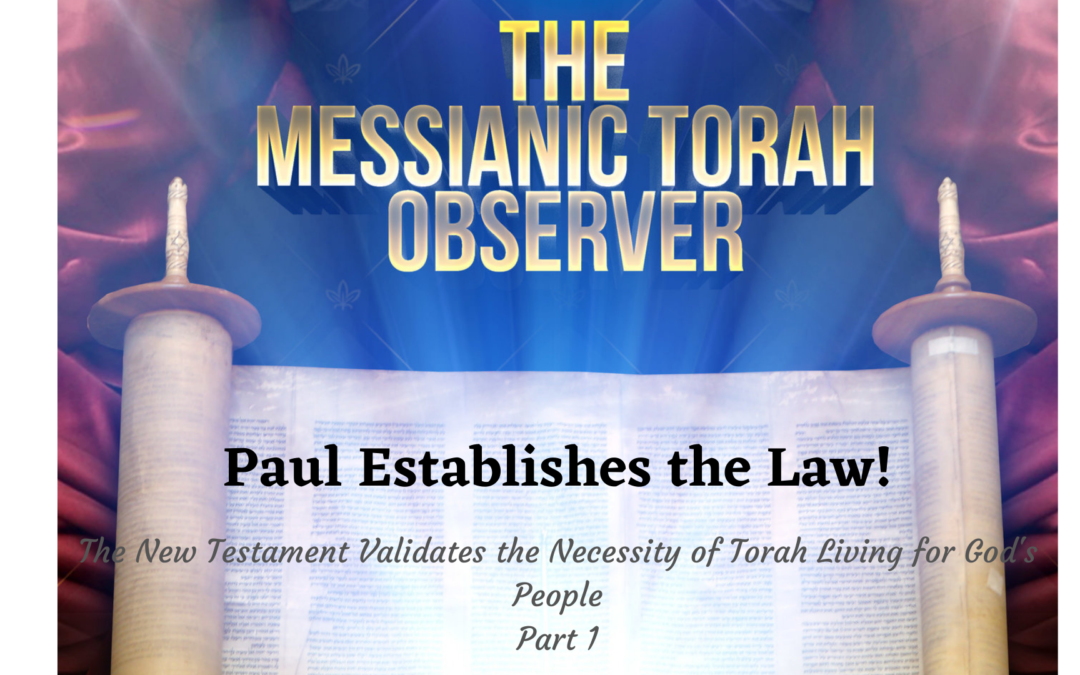
Paul Establishes the Law-Part 1 of the New Testament Validates the Necessity of Torah-Living for God’s People Series
In today’s discussion, we will attempt to define what the apostle means by “we establish Torah” in light of those seeming “anti-Torah” statements he makes in chapter 3 of the Book of Romans.
The Messianic Versus the World-Part 1-The Messianic Against the Corrupt and Evil Governments, Leaders and Sheeple of this World
The Messianic Versus a Corrupt World The governments of this world along with their leaders are openly evil and corrupt. They have brazenly shown that they have no shame in this regard. Many, in fact, have boasted of their evil and corrupt ways and intentions to...
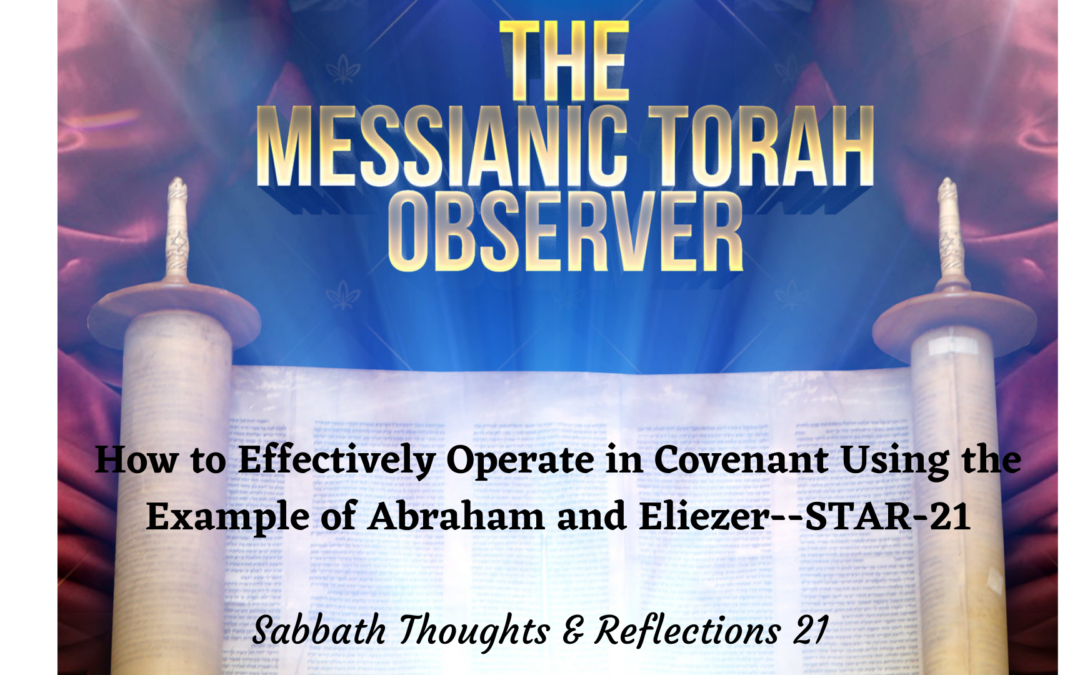
How to Effectively Operate in Covenant Using the Example of Abraham and Eliezer–STAR-21
We’ve talked quite a lot about be the importance of being in covenant and operating in covenant. But how does one operate in covenant? What is needed to operate in covenant. Well, this week’s Torah Reading may provide us the answers to these questions. Shabbat Shalom and Welcome.
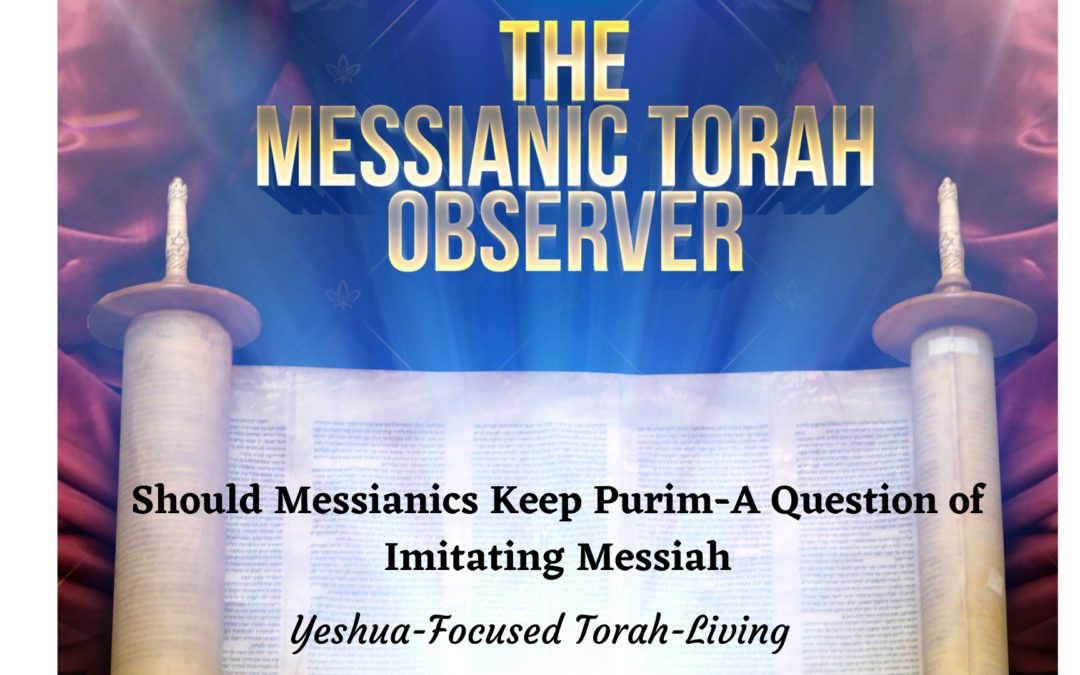
Should Messianics Keep Purim? A Question of Imitating Messiah
In this installment of TMTO, we ask and answer the question: Should Messianics keep-observe-honor-memorialize Purim? And in our brief exploration of this topic, we examine opposing views as it relates to Messianics and Purim.
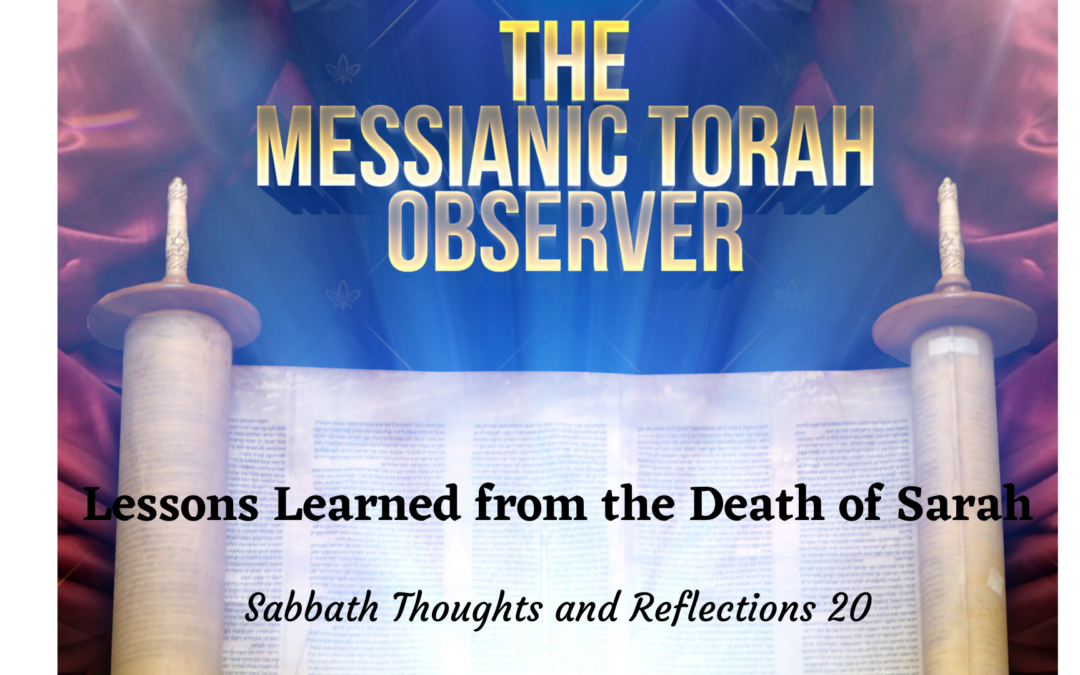
Lessons Learned from the Death of Sarah-STAR-20
In our Torah Reading for this Sabbath, we read of the death of the Matriarch of our Faith, Sarah. And in our discussion, we will explore the eternal truths associated with this sad, but important story. We will touch upon the themes of loving our wives; being a sojourner in this world; burial versus cremation when caring for a deceased loved one; as well as we’ll examine many of the historic and cultural elements that are attached to this beautiful Reading. Shalom and Welcome.
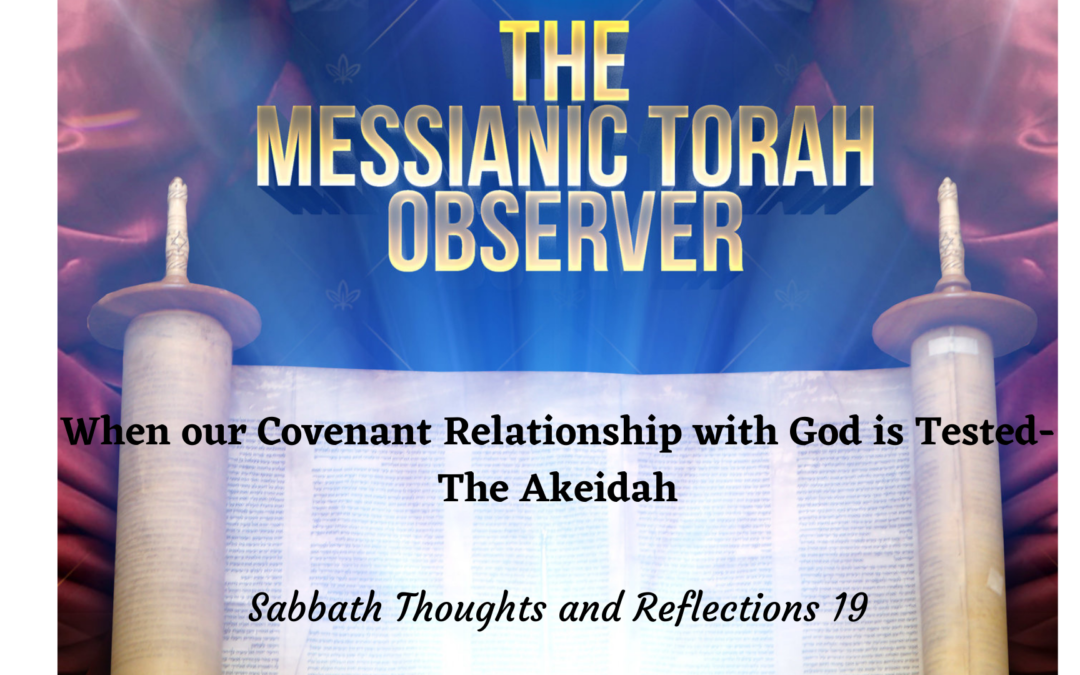
When our Covenant Relationship with God is Tested-Akeida-STAR-19
This week’s Torah Reading is that of the Akeidah or the binding of Isaac. It is a story about obedience, trusting faith and the ultimate goal of the Abrahamic Covenant. We will also explore the ramifications associated with God’s testing of those whom He loves. This is one of the most important Torah Reading Discussions of the Torah Reading Cycle. Come fellowship with us and let’s discuss the Eternal Mysteries of Yah’s Eternal Words of Life.
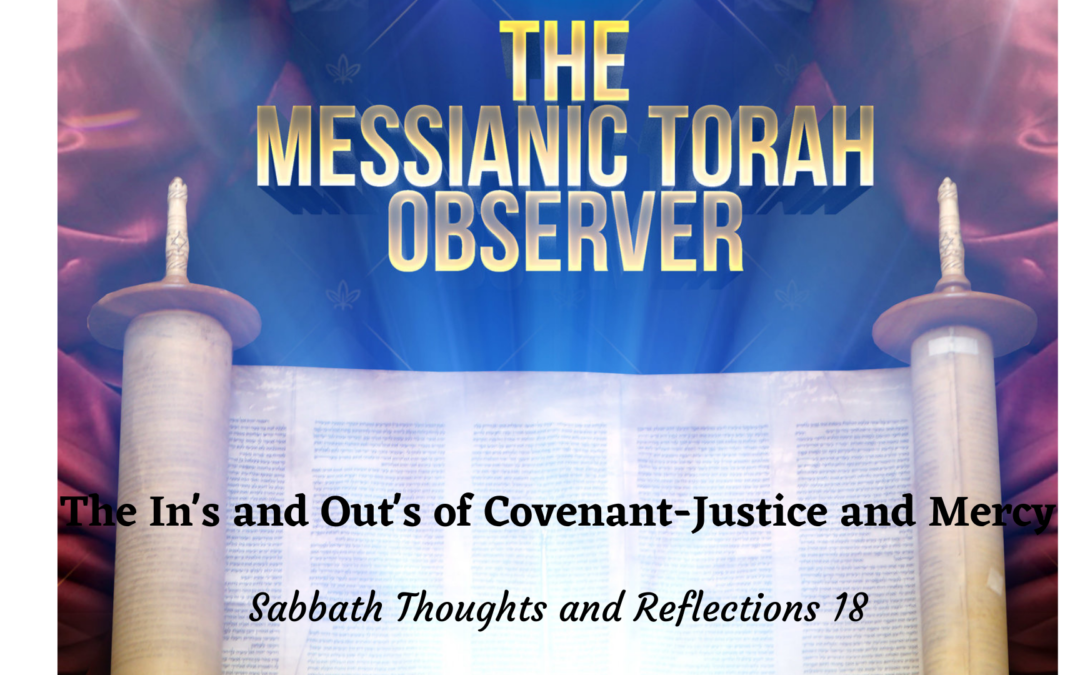
The In’s and Out’s of Covenant-Justice and Mercy-STAR-18
Many of us view covenant as an exclusive club or culture that belongs to God’s elect and those who find themselves outside of covenant are doomed to be outside of God’s blessings and provision. But the truth of the matter is that God operates in ways that are often foreign to us and that defy how we believe God should operate. In today’s Torah Reading discussion, we discuss the in’s and out’s of covenant and how God’s justice and mercy define how He will interact with those who are in covenant versus those who are outside covenant.
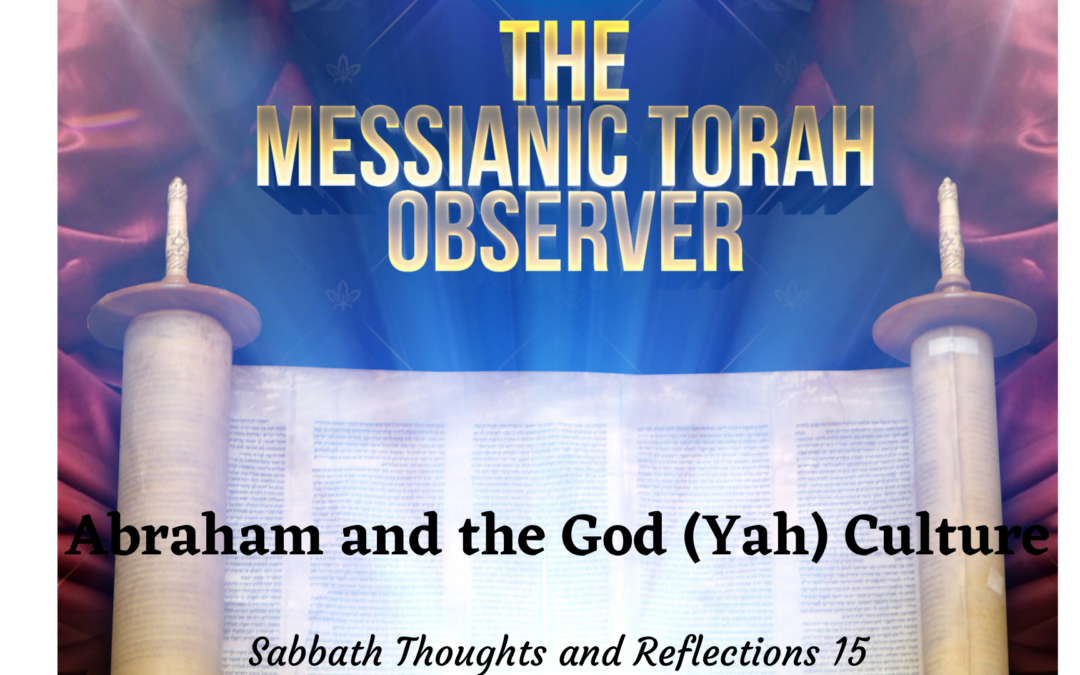
Abraham and the God (Yah) Culture–Sabbath Thoughts & Reflections 15
This week’s Torah Reading touches on a number of relevant themes that include righteousness, justice, reverence, hospitality, boldness, laughter, theophanies and covenant. But the one theme that stands out most is culture. In this installment of TMTO’s Sabbath Thoughts and Reflections, we explore each of these themes, in particular the theme of culture. What is the God Culture/the Hebrew Culture? What was Abraham’s role in that Culture? And what does that culture have to do with us today?
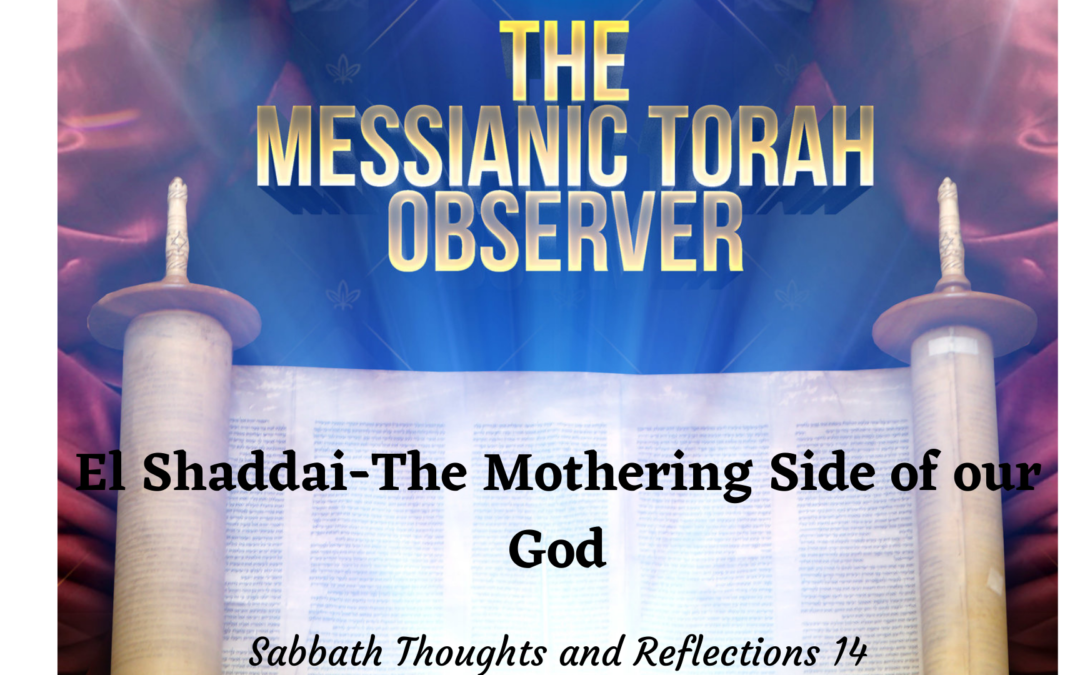
El Shaddai-The Mothering Side of our God-STAR 14
Seems we have been indoctrinated to view God exclusively from a “Fathering” perspective. But could one of God’s revealed names be indicative of a “Mothering” side to the Creator of the Universe? In this installment of TMTO we explore and discuss the power and meaning of El Shaddai.
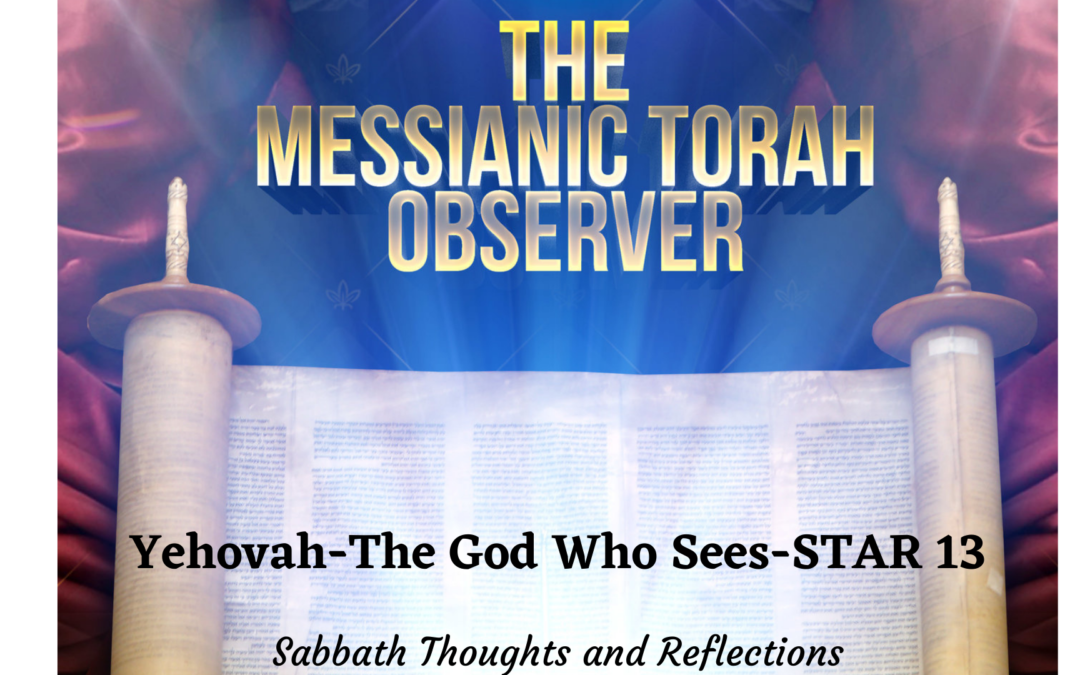
Yehovah-The God Who Sees-STAR 13
In our reading today, we’re led to think and reflect on the themes of:
● Trusting Faith
● Respect
● Patience & Perseverance
● Responsibility
● Honor
● The Spirit Realm Intersecting with the Physical Realm
● Promise
● Sonship
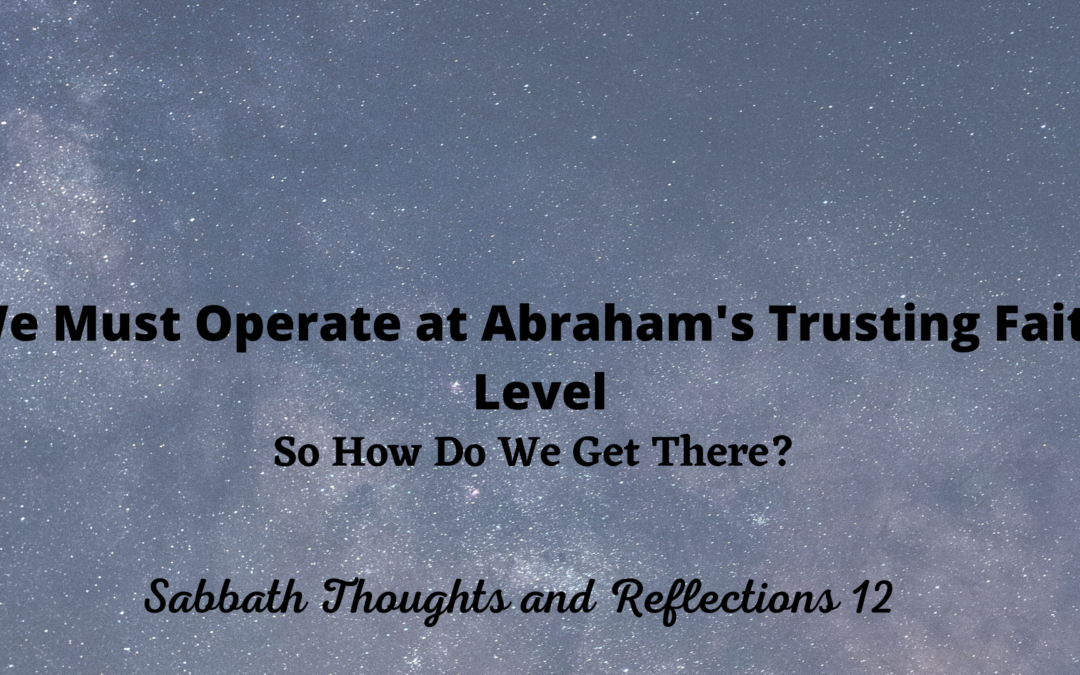
We Must Operate at Abraham’s Trusting Faith Level-So How Do We Get There? STAR 12
Today’s Torah Reading discussion will touch upon a great many themes that include operating in a trusting faith; the righteousness of Elohim; obedience to Yah’s instructions; divine protections and rewards; and the wisdom of challenging or questioning Yehovah.
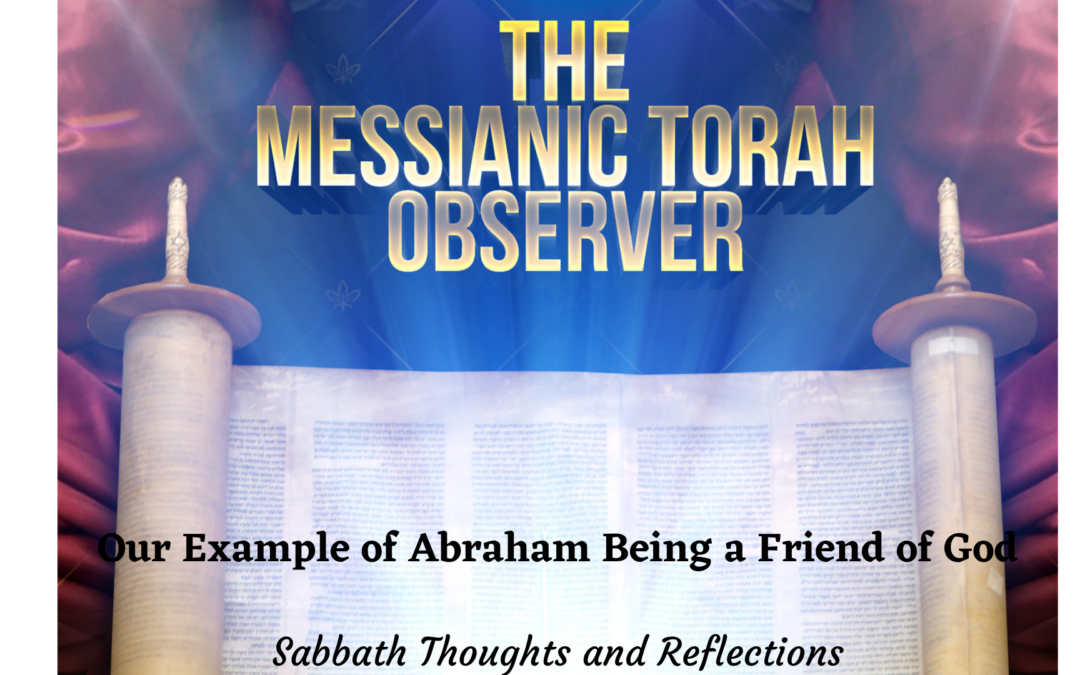
Our Example of Abraham Being a Friend of God-STAR-11
The circumcised heart of an individual—contrite and broken and humble in spirit—is the one thing that captures Yah’s attention and places him or her in contention for being chosen as His friend and ultimately His child. If our heart ain’t right, we ain’t going to be chosen to enter into an obedient covenant relationship with Yehovah, much less a friend or child of His.
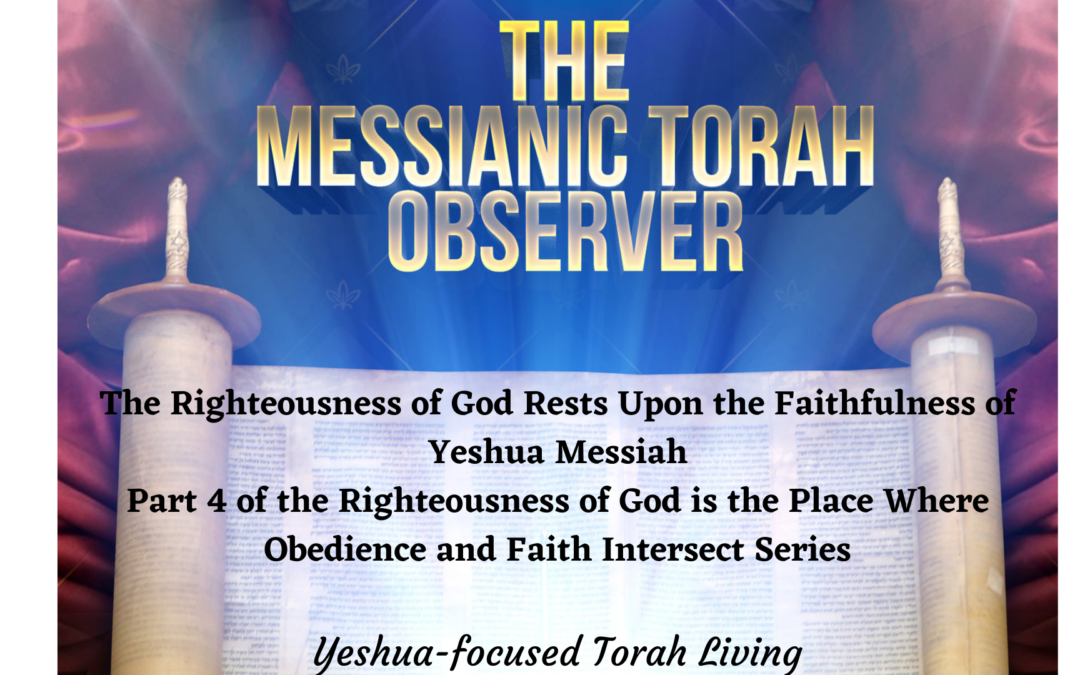
The Righteousness of God Rests Upon the Faithfulness of Yeshua Messiah
Indeed, the Righteousness of God is the place where faith and obedience come together through the Person and Ministry of Yahoshua Messiah. His faithful obedience to Yehovah becomes our faithful obedience, even unto death.
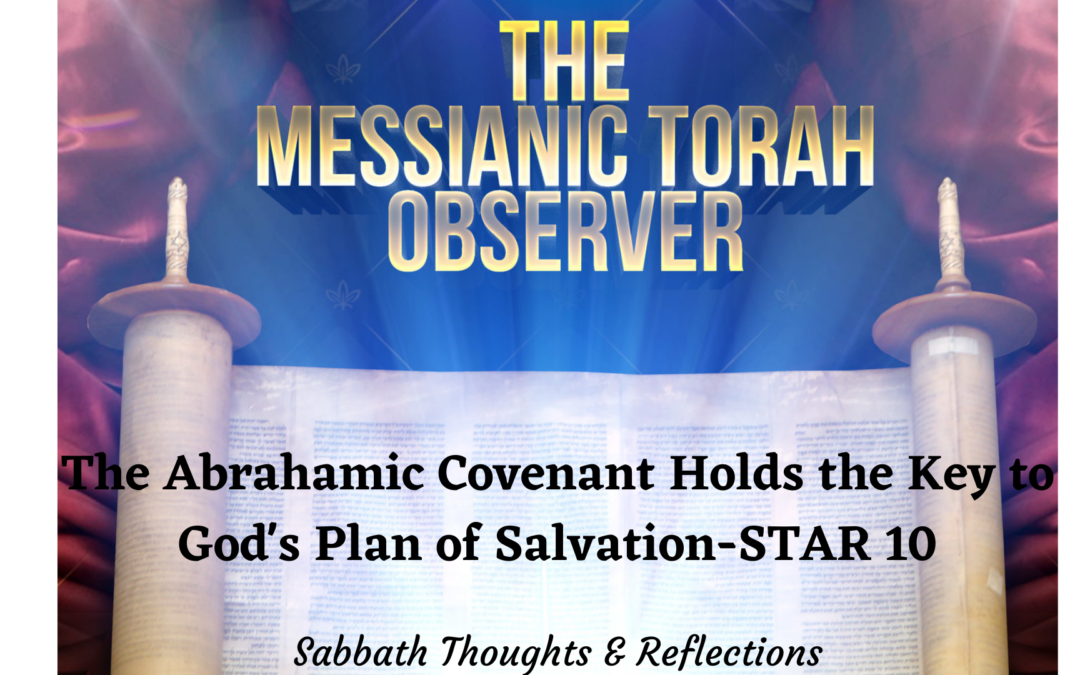
The Abrahamic Covenant Holds the Key to God’s Plan of Salvation-STAR 10
The Abrahamic Covenant is the essential element of this week’s Torah Reading. We find in our discussion that the Abrahamic Covenant holds the key to God’s Plan of Salvation. Shabbat Shalom.
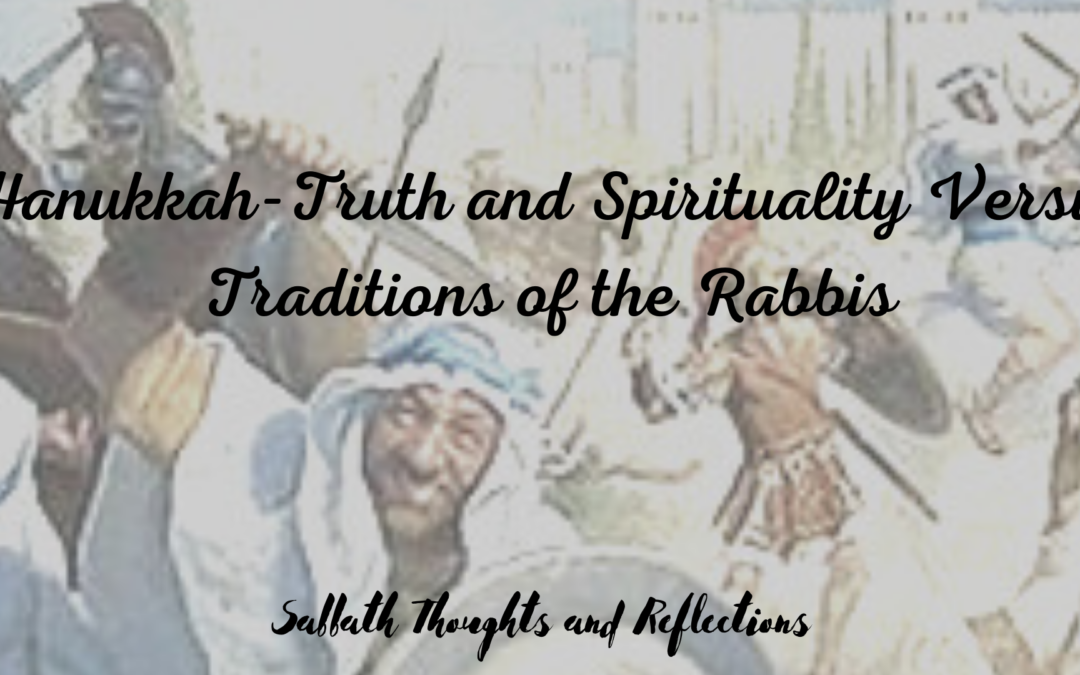
Hanukkah-Truth and Spirituality Versus Traditions of the Rabbis
Many within our Faith Community will be celebrating Hanukkah this week. But is their celebration aligned with the Truth and Spiritual Reality of the Holiday or rather on the Traditions that revolve around it.
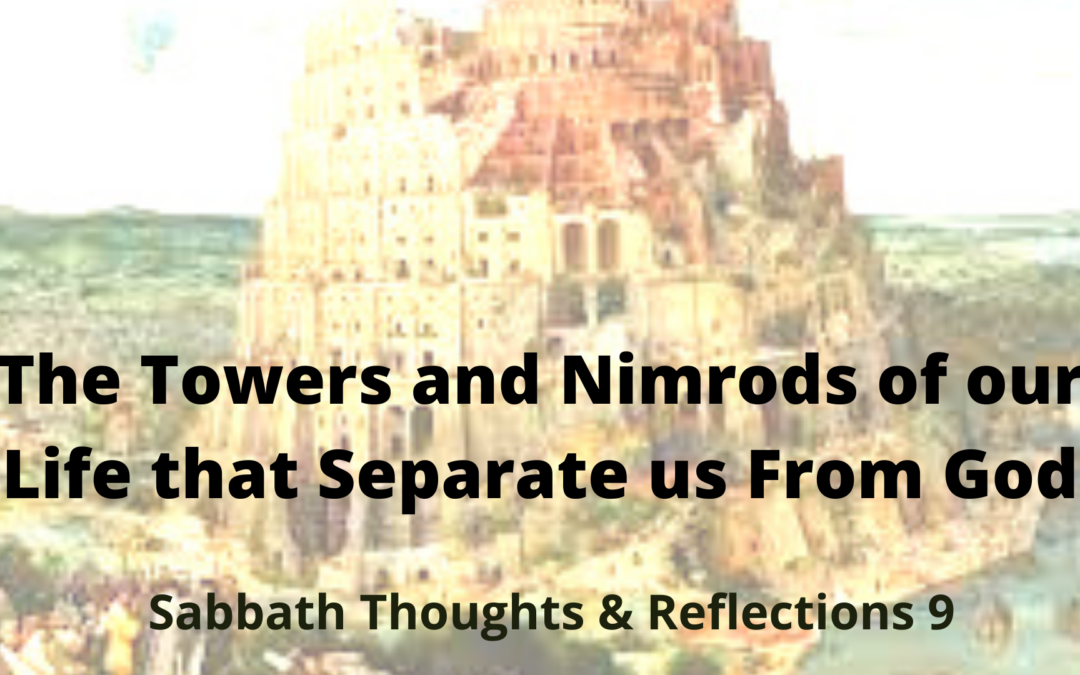
The Towers and Nimrods of our Life that Separate us From God
This week’s Torah Reading is based upon the Tower of Babel story. This story may cause us to reflect and think about those towers in our lives that cause us to be separated from God.
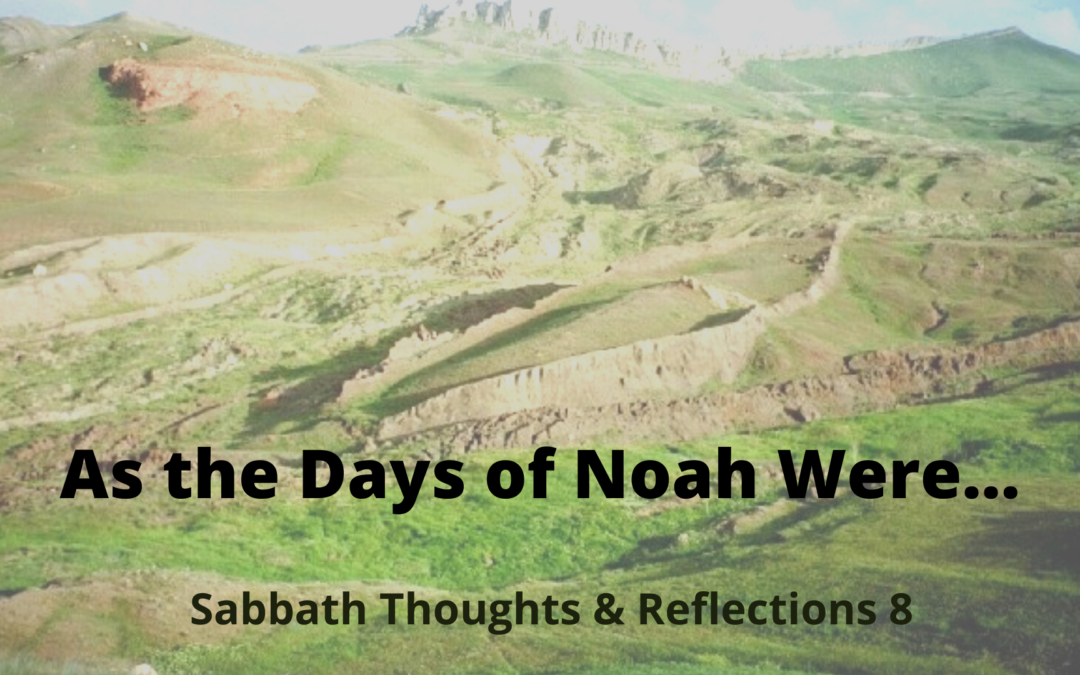
As the Days of Noah Were…Sabbath Thoughts and Reflections 8
What are the implications for us of Yeshua’s prophecy that the world He would return to would be as the days of Noah were? We discuss, think and reflect. Shabbat Shalom.
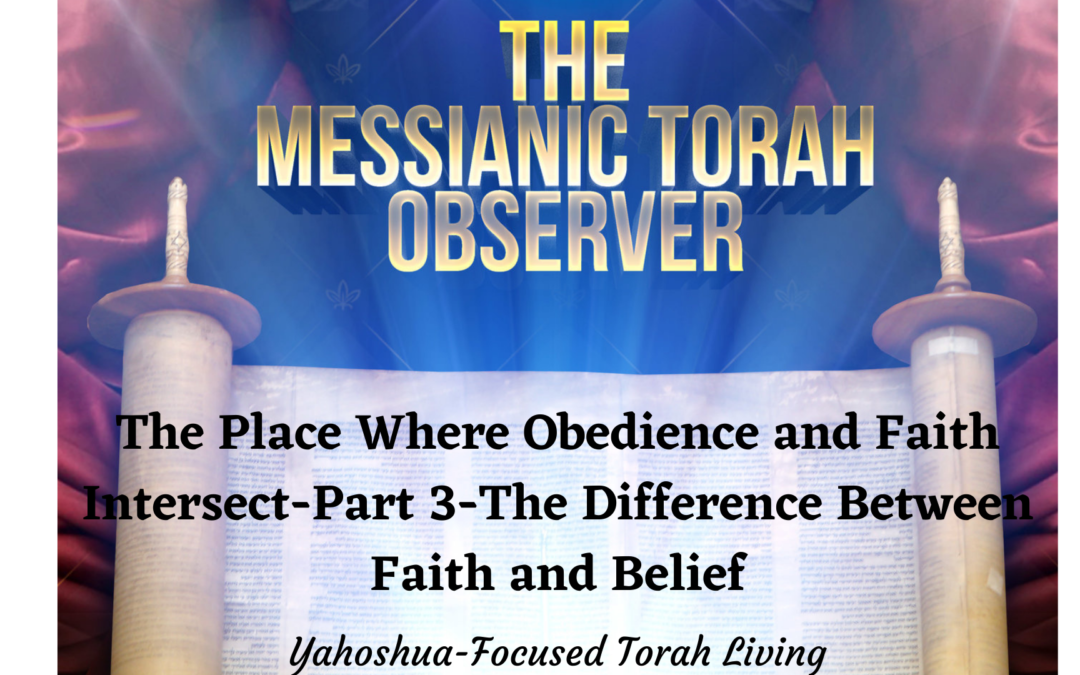
The Difference Between Faith and Belief-The Righteousness of God is the Place Where Obedience and Faith Intersect-Part 3
In our continuing exploration of Shaul’s teaching on the Righteousness of God, we answer the critical question: Is there a difference between biblical “faith” and “belief? Both terms are mentioned as important elements to our receiving of God’s Righteousness.
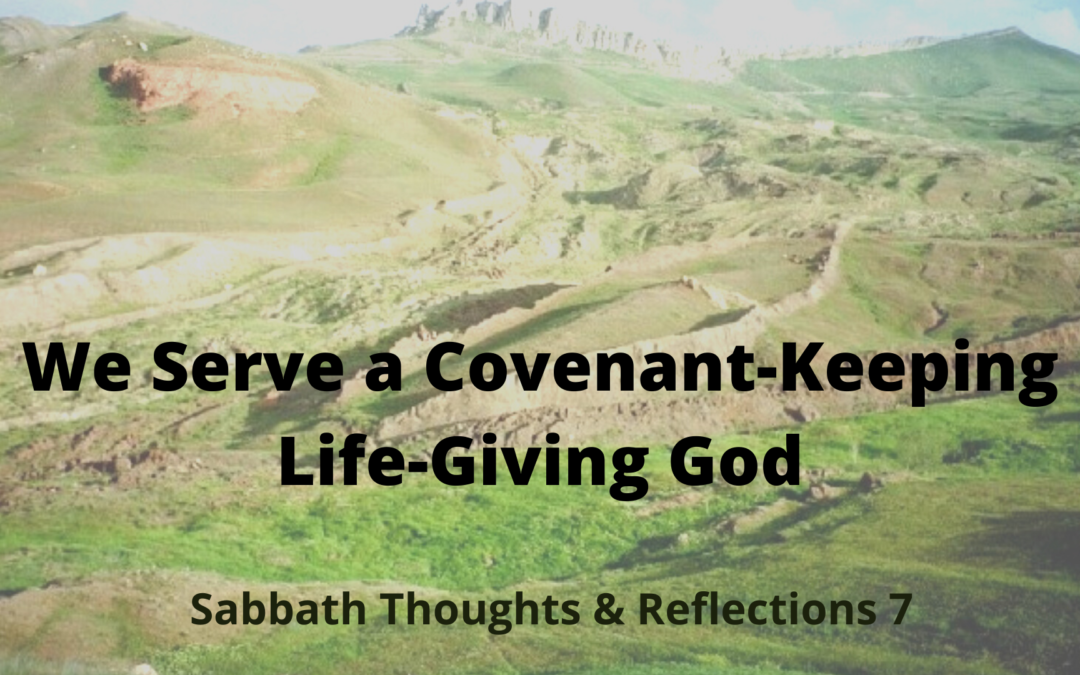
We Serve a Covenant-Keeping Life-Giving God-STAR-7
In this week’s Torah Reading, we discuss the Truth about the Noahide Laws; the true significance of the rainbow; and the character of God that promotes life and covenant among humanity. Come study and fellowship with us. Shabbat Shalom.
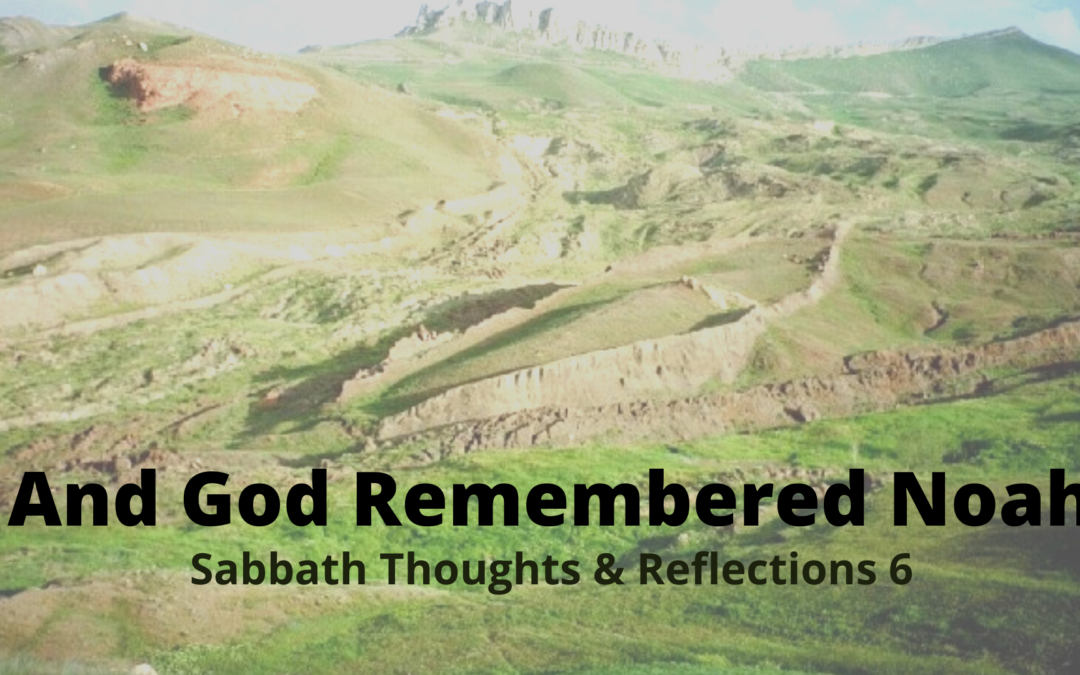
And God Remembered Noah-Sabbath Thoughts & Reflections 6
This week’s Torah Reading is the story of the saving of Noah and his family brought about through God keeping covenant and manifesting His righteousness. Come study with us. Shabbat Shalom.
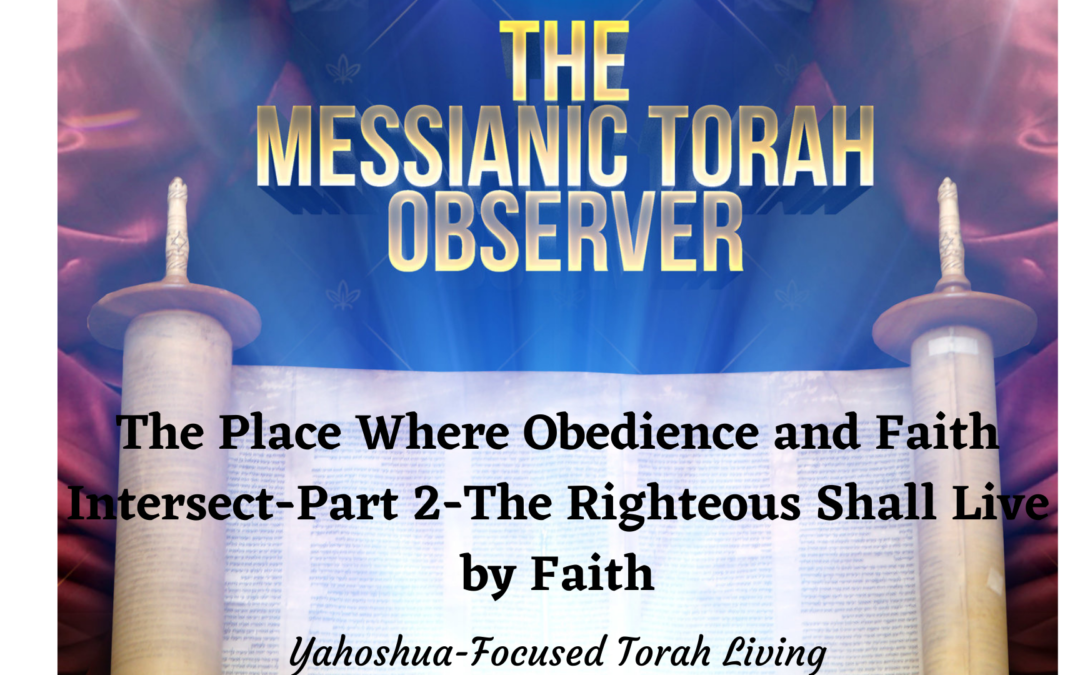
The Righteousness of God is the Place Where Obedience and Faith Intersect-Part 2-The Righteous Shall Live By Faith
Paul declared to the Romans that the just shall live by faith. What exactly did he mean by that statement, especially as it relates to our walk in Messiah? We discuss
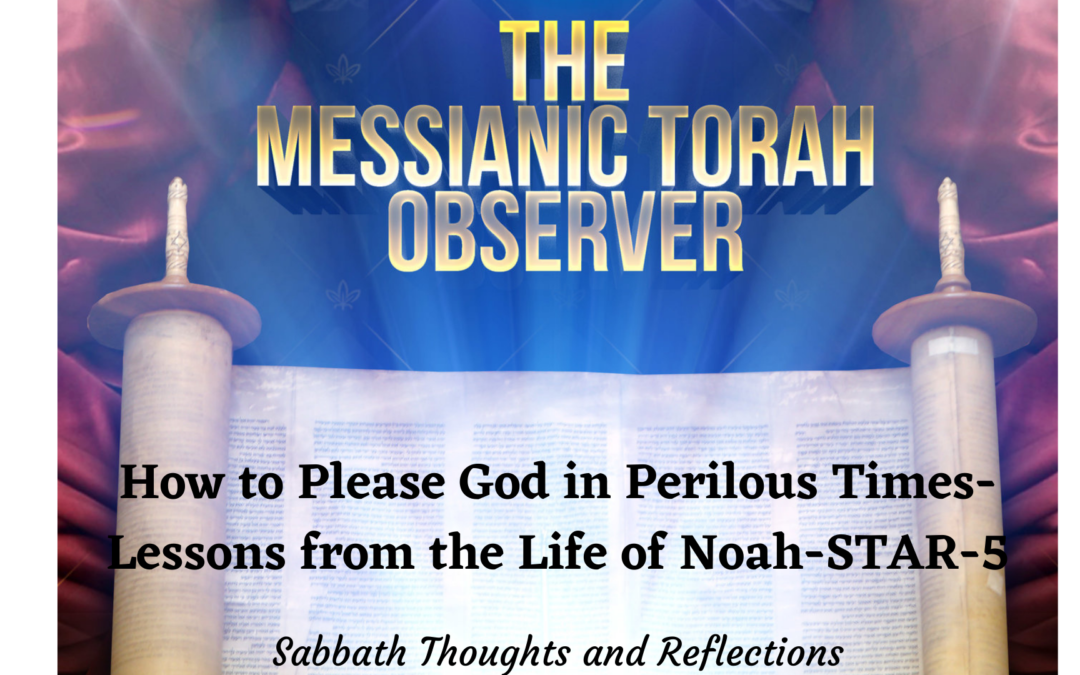
How to Please God in Perilous Times-Lessons from the Life of Noah-STAR-5
Noah pleased God in one of the most wicked periods of human history. What was it about Noah that pleased God? His story is the key to our pleasing God in these perilous times and we discuss in this installment of TMTO STAR.
Forbidden Messianic Titles and Roles for the Body of Messiah
This is "Forbidden Messianic Titles and Roles for the Body of Messiah." And this discussion is within the purview of the central theme for this ministry: "Yeshua-focused Torah Living." We are all about promoting the Netzari Faith that was once delivered to the...
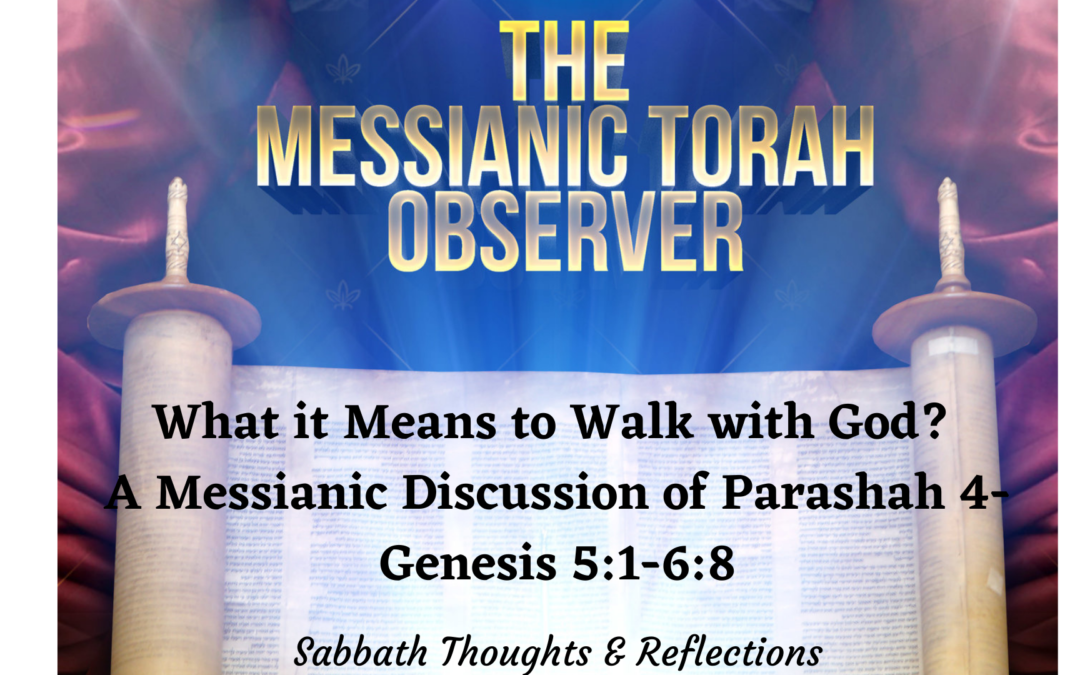
What it Means to Walk with God? STAR-4
Today’s discussion is entitled: “What it Means to Walk with God;” it is a Messianic Discussion of the 4th Parashah in the 3-year Torah Reading Cycle. Our discussion text for this Shabbat will be Genesis 5:1-6:8. I will be reading and commenting from the...
The Righteousness of God is the Place Where Obedience and Faith Intersect-Part 1-What is the Righteousness of God?
This is “The Righteousness of God is the Place Where Obedience and Faith Intersect—Part 1—What is the Righteousness of God?” Pose the Central Questions Inevitably, the central question facing Messianics is how does one balance a life of Torah-honoring with that of...
The Heart of True Worship-STAR-3-A Messianic Discussion of Genesis 4:1-26
Today’s discussion is entitled: “The Very Heart of True Worship;” it is a Messianic Discussion of the 3rd Parashah in the 3-year Torah Reading Cycle. Our discussion text for this Shabbat will be Genesis 4:1-26. I will be reading and commenting from the...
Who is to Blame for the Sin of the World? Adam or Eve?” STAR-2-A Discussion of Genesis 2:4-3:24
INTRODUCTION This is Sabbath Thoughts and Reflections 2—A Discussion of Genesis 2:4-3:24—Parashah 2 in our 3-year Torah Reading Cycle. Since the rabbis did not have a hand in naming the individual Torah Readings in the 3-year Reading Cycles, for the sake of reference,...
The Call to True Biblical Repentance is to Teshuva
A Question of Kingdom Preparedness This was a teaching I delivered to a Sabbath-keeping group online this past Sukkot. I've entitled it "The Call to True Biblical Repentance is to Teshuva." This teaching is actually the firstfruits, if you will, of an overall...
Made in the Image of God-Sabbath Thoughts & Reflections on Genesis 1:1-2:3
"In the beginning Yehovah created..." appears to be a subordinate or supportive statement as opposed to an independent clause. Assuming subordinate/supportive is accurate, the clause is better rendered: "When Yehovah began to create the heavens and the earth..."...
[If] The Law Does Not Save—[Then] What Good Is It–A Messianic Discussion of Romans 3:9-20
Goal Today’s installment of The Messianic Torah Observer is entitled: “[If] The Law Does Not Save—[Then] What Good Is It--A Messianic Discussion of Romans 3:9-20.” Our goal for today’s discussion is to draw from the Apostle Paul’s letter to the first-century Roman...
What Right Does God Have to Punish Anyone? A Messianic Discussion of Romans 3:5-8
Goal: This is a continuation and an expansion of the diatribe the apostle began back in the second half of the second chapter of Romans which I’ve entitled: “What Right Does God Have to Punish Anyone—A Messianic Discussion of Romans 3:5-8.” And our goal for this...
Let God Be True and Every Man a Liar–A Messianic Discussion of Romans 3:3-4
Goal: This is “Let God Be True and Every Man a Liar—A Messianic Discussion of Romans 3:3-4.” It will be a resumption of our examination and discussion of Romans chapter three (3), picking up where we left off from the last installment of our overarching Paul and...
The Oracles of God-The Jewish Advantage-A Messianic Discussion of Romans 3:1-2
The Oracles of God-The Jewish Advantage-A Discussion of Romans 3:1-2 Today’s discussion is entitled: “The Oracles of God—The Jewish Advantage--A Discussion of Romans 3:1-2. This will be a continuation of our long-running Paul and Hebrew Roots Series. Looking...
Paul on Physical Circumcision-A Question of One’s Jewishness Part 4
In today's post we answer the questions: Is physical circumcision still a valid commandment for men of faith to keep and obey? What advantage is there to physical circumcision? Synopsis of the Preceding Installments to the Series Over the course of the last three...
Marriage and Divorce According to Torah Part 2–A Discussion of Parashah 144
Marriage and Divorce According to Torah Part 2—A Discussion of Parashah 144 This is the second post or second half of the overall discussion I have for you regarding this week’s Torah Reading of Deuteronomy 24:1-4. In this post we will cover the teachings of Y’shua...
Marriage and Divorce According to Torah Part 1–A Discussion of Parashah 144
Marriage and Divorce According to Torah Part 1—A Discussion of Parashah 144 Although our Torah Reading for today, Parashah 144, covers Deuteronomy 24:1–25:19, I was led by the content to focus only on the first four-verses of the entire reading. The focus of these...
What Loving One Another Looks Like–The Morality and Love of Torah-Parashah 143
What Loving One Another Looks Like--The Morality and Love of Torah-Parashah 143—Sabbath Thoughts and Reflections Our Torah Reading This Week—Parashah 143—Is Found in Deuteronomy 22:8-23:25 The physical should always be followed when applicable, but also the...
What is the True State of our Worship?–Parashah 139 Discussion and Study
What is the True State of our Worship?--Parashah 139 Discussion and Study In today’s installment we will be discussing Parashah 139—which is contained in Deuteronomy 17:1-20. So grab your bible and maybe a cup of coffee or tea, and let’s get into our study of Yah’s...
A Sit-Down Conversation with Dr. Miles R. Jones on the Survival of the Hebrew Gospels
Greek Primacy vs. Hebrew We have been indoctrinated and taught that the original Gospel texts of Matthew, Mark, Luke, John, Acts and Revelation were all written in ancient Greek. But is this in fact true? For one must rationalize that the writers of these texts were...
Round and Round the Asherah Pole We Go–Parashah 138
This Week’s Torah Reading This week’s Torah Reading, Parashah 138, is contained in Deuteronomy 16:13-22. My ruach eye (that is, my spirit eye) seemed focused primarily on Deuteronomy 16:21-22. These two verses has to do with, yet again, another admonishment to avoid...
Paul on Physical Circumcision for God’s People–A Question of One’s Jewishness Part 3
Opening Remarks on Paul on the Question of Physical Circumcision for God’s People In this installment of the Messianic Torah Observer, we return to our Paul and Hebrew Roots Series and to our series within a series entitled: “A Question of One’s Jewishness.” Today,...
God’s Food Laws-Tithing-Walking in Obedient Covenant Relationship with God-Parashah 136
This Week’s Torah Reading is found in Deuteronomy 12:20-15:6. I’ve entitled this discussion: Gods Food Laws-Tithing-Walking in Obedient Covenant Relationship with God-Parashah 136 Personal Perspective—Opening Remarks Our obedient covenant relationship with the...
Racism and Faith–What Walking in Torah With a Circumcised Heart Looks Like—Parashah 134
How Yah views race and skin color This past week’s interaction with Faith and Race. Not a direct interaction, but an interaction that directly affected friends of this ministry. And these friends ended up having a very troubling experience with a member a black...
Humility-Pride-Remembering-God’s Grace and God’s Faithfulness—Parashah 133
Our Torah Reading: Deuteronomy 9:1-29—Humility-Pride-Remembering-God’s Grace and Faithfulness—Parashah 133 Father’s Faithfulness Stands Despite Our Debased Nature How are we to understand Father’s faithfulness towards us despite our incessant propensity to...
Who and What is Yeshua Messiah-My Personal Perspective on the Person of Yeshua Messiah
Recently, a dear sister discovered this ministry through our website, www.themessianictorahobserver.org. She reached out to me via a couple email messages. And she posed the question: Who or what I believe Yeshua Messiah to be? And she prefaced her question by...
Yeshua-The Bread of Life-Torah Reading-132
Introduction to Parashah 132—Yeshua, the Bread of Life Our Parshah this week, under the 3-year Torah Reading cycle, is found in Deuteronomy 8:1-20. The most prominent verse in the reading is verse 3: “Thou shalt not live by bread alone, but by every Word that...
Blaspheming the Name of God-Part-2 of the Series A Question of One’s Jewishness
Picking-Up Where We Left Off What I want to do this week is to pick-up from where we left off from the last installment of this series within a series which was entitled: "You Are Called a Jew" and move on through verses 19 through 24 in this installment. And...
The Shema-God’s Word Dwelling Within Us-Sabbath Thoughts & Reflections-Parashah 131
Today's Torah Reading Shabbat Shalom beloved of the Most High and sister and brother of the true Faith once delivered. Today's Torah Reading or Parshah is found in Deuteronomy 6:4-7:26; Zechariah 14:1-9; and Mark 12:28-34. But given the content rich nature of this...
Hear O Israel The Statutes and Ordinances Which I Speak-Thoughts and Reflections on Parashah 130-Deuteronomy 5:1-6:3
What Yehovah Expects of His Children This week's Torah Reading (aka parshah), found in Deuteronomy 5:1-6:3, is a reiteration of the 10-Commandments by Moshe to the generation slated to enter the Land of Promise. And along with that iteration comes clarification as to...
Heeding Zophar’s Wisdom About Yehovah
Job: A Story With Many Complexities You know, the story of Job is not by any stretch of the imagination an easy one to work through. Theres just so many complex literary and spiritual textures and concepts woven into the baseline story. The Cepher of Job is in part a...
Can I Get a Witness Up In Here?
A Story of Witness and Commitment to YHVH Picking up from my last blog-post taken from the Cepher of Y’hoshua (aka Joshua), I wish to now turn our attention to chapter 22, verses 10-34. And what we find here in this passage of Holy Writ is an amazing but awesome...
The Great Commitment to Kingdom Living by God’s Elect
My daily Torah studies this morning brought me to the Cepher of Y'hoshua (aka Joshua), chapter 22. By the end of my studies this morning, I was compelled to ask myself, what is the level of commitment I had to walking and living Kingdom. You'll soon see what I mean....
You Are Called a Jew-Part 1 of the Series: A Question of One’s Jewishness
Goal Today we continue our exposition into some of the Apostle Paul's most challenging and hard to understand writings and teachings, having just concluded in our previous post a discussion on the apostle's naming the "gospel" as "my gospel." (I would humbly...
The Gospel According to the Apostle Paul
Our New Challenging Pauline Passage--Romans 2:16--A Seemingly Bold and Curt Statement From the Apostle. Our focus passage, or more precisely, our focus verse today is Romans 2:16. And we find when we read this verse a rather bold and seemingly curt statement...
Are You Under the Law? Part 4 of the Paul on Being Under the Law Series
A Culmination of the Previous 3-Installments Today's discussion is a culmination of the previous 3-installments of this series within a series where we'll finally answer the question: What did Paul mean by one who is under the Law as mentioned in Romans 6:14-15. And...

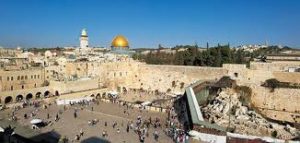
0 Comments